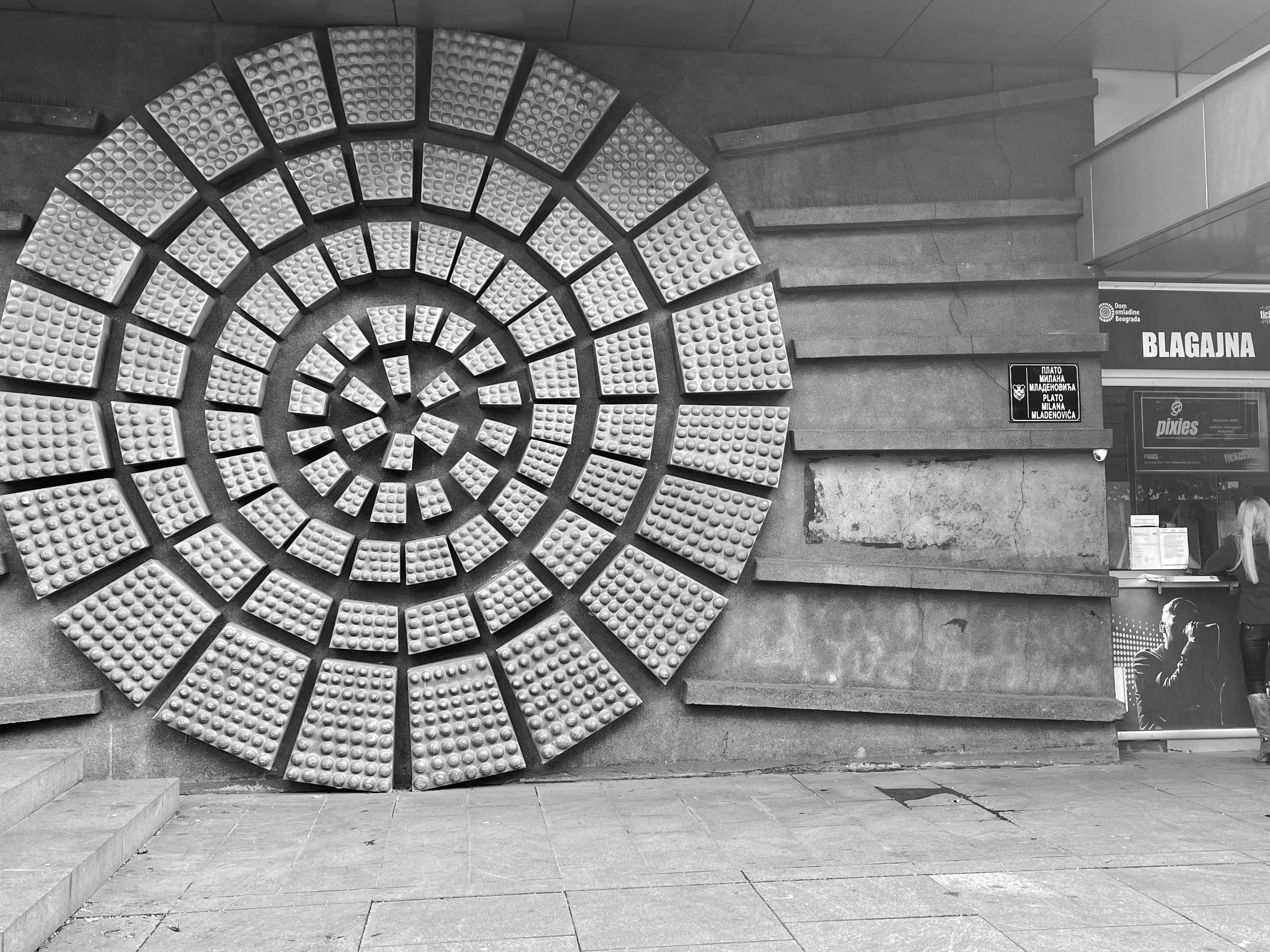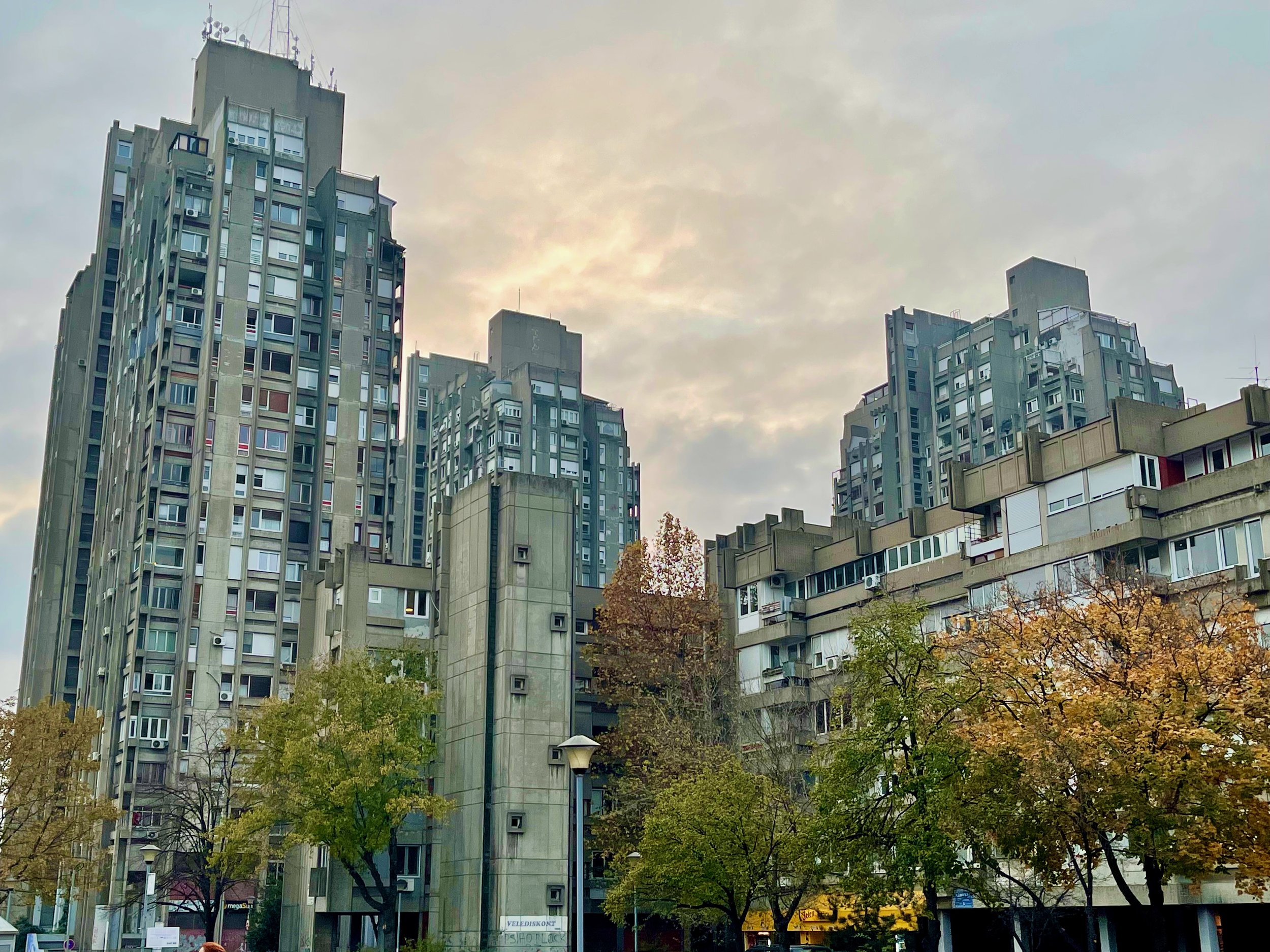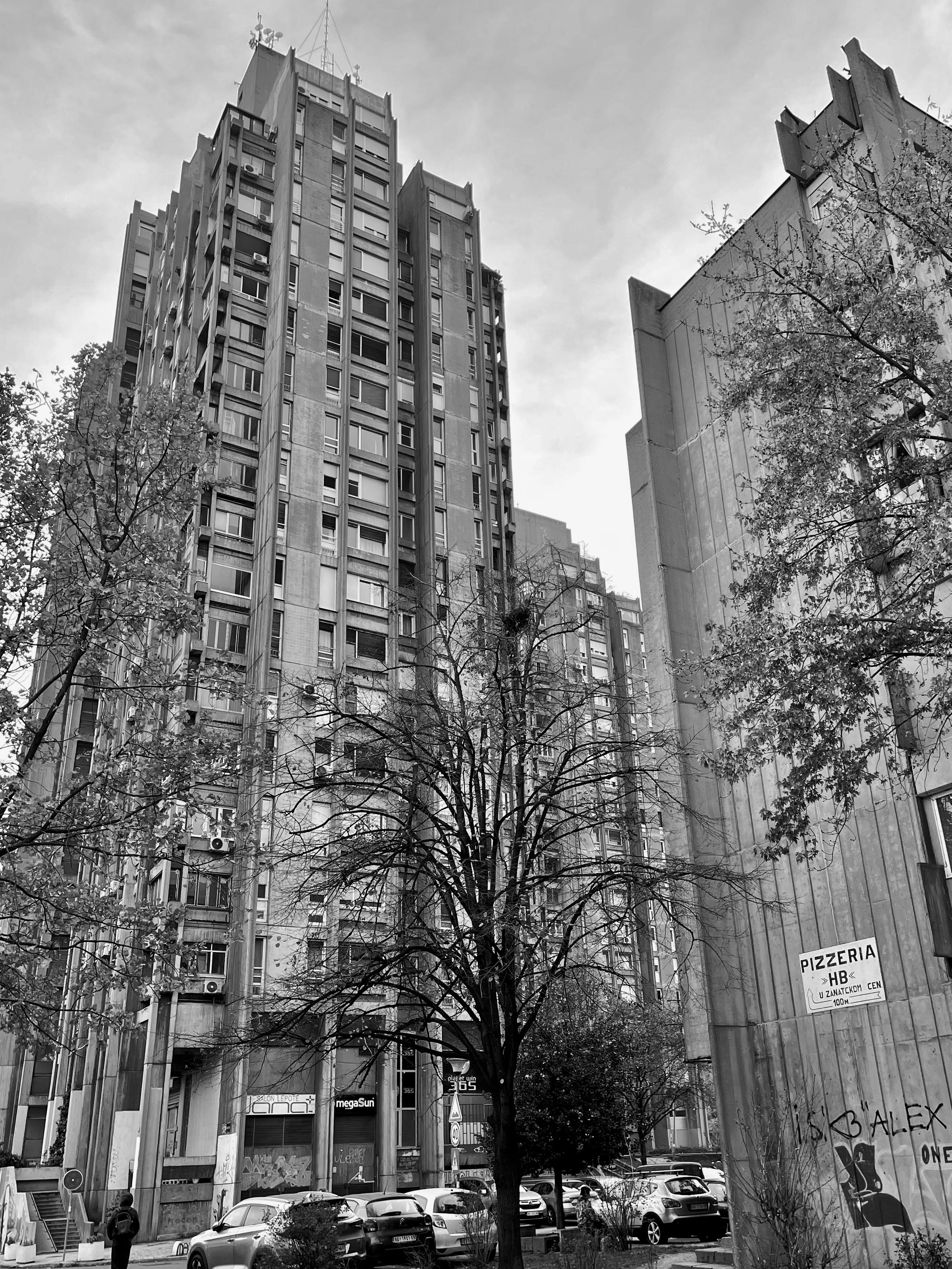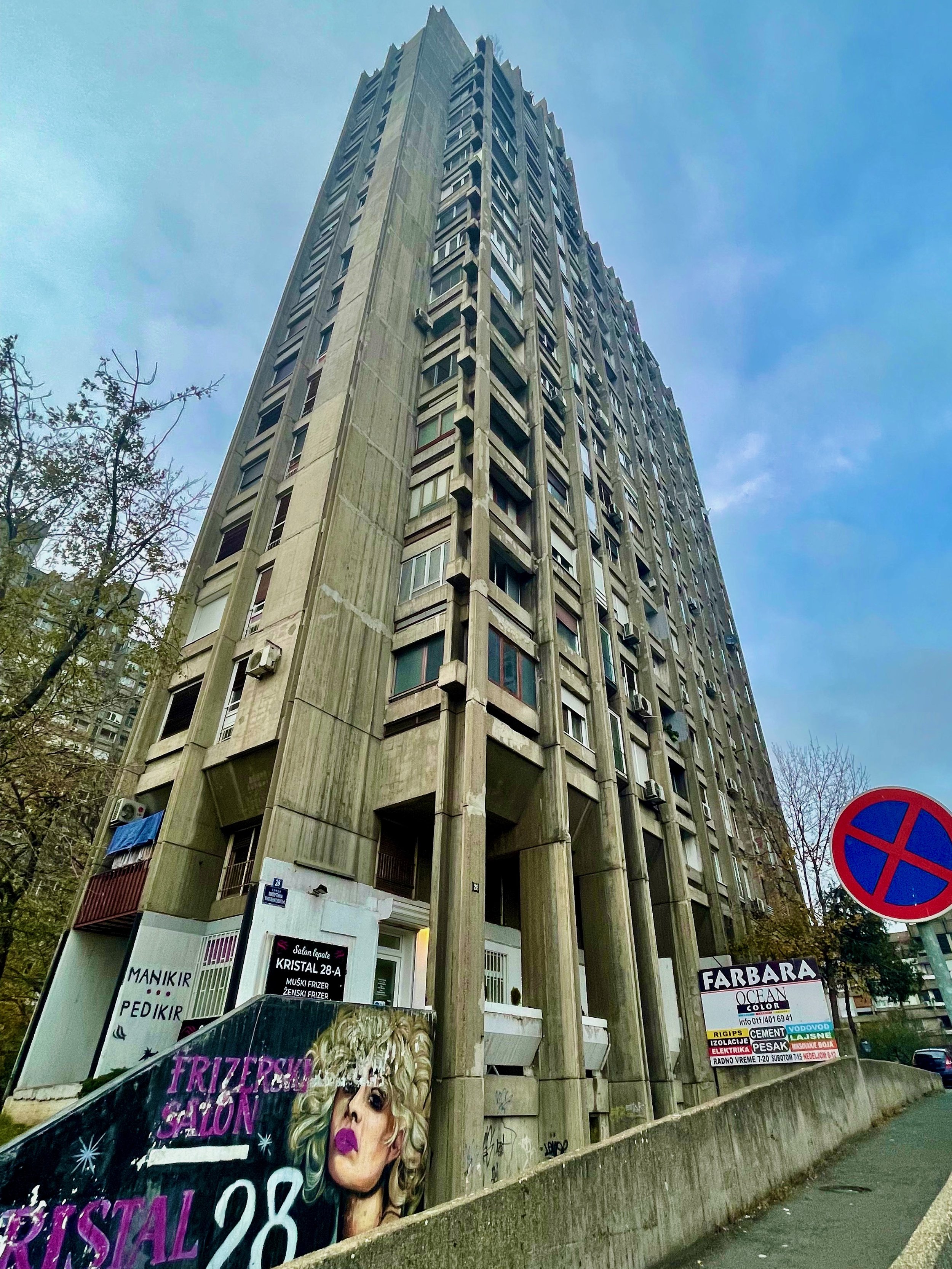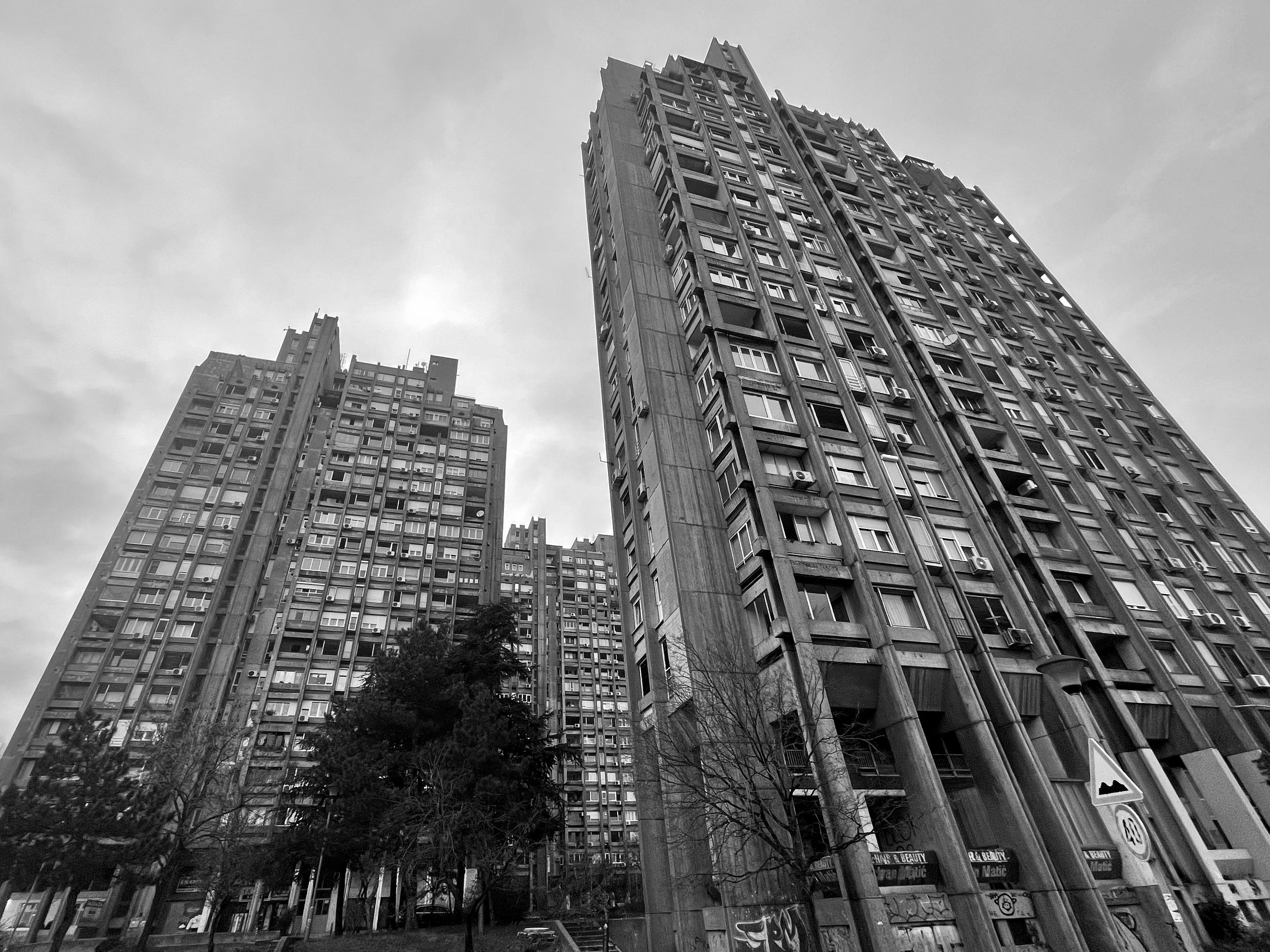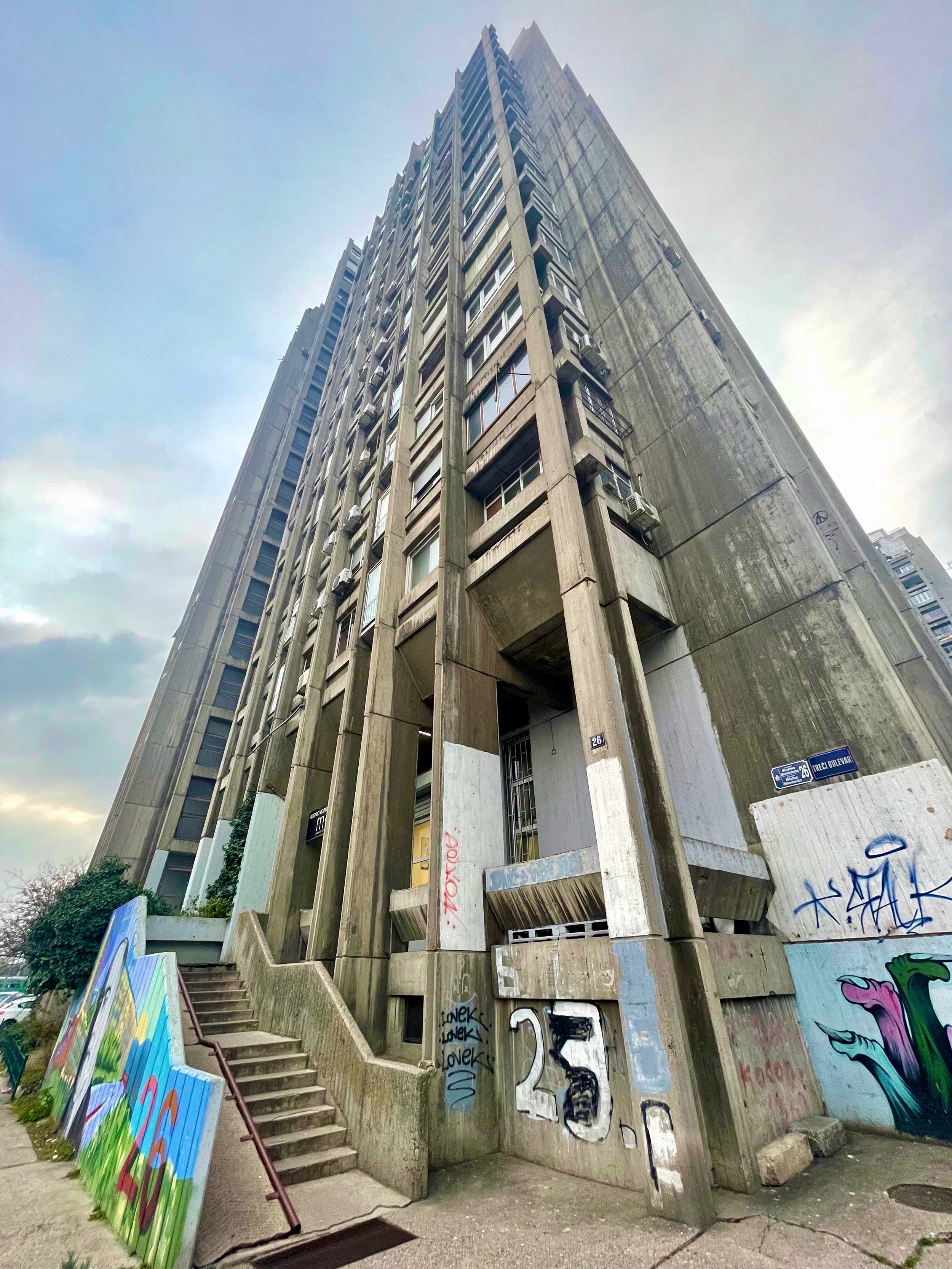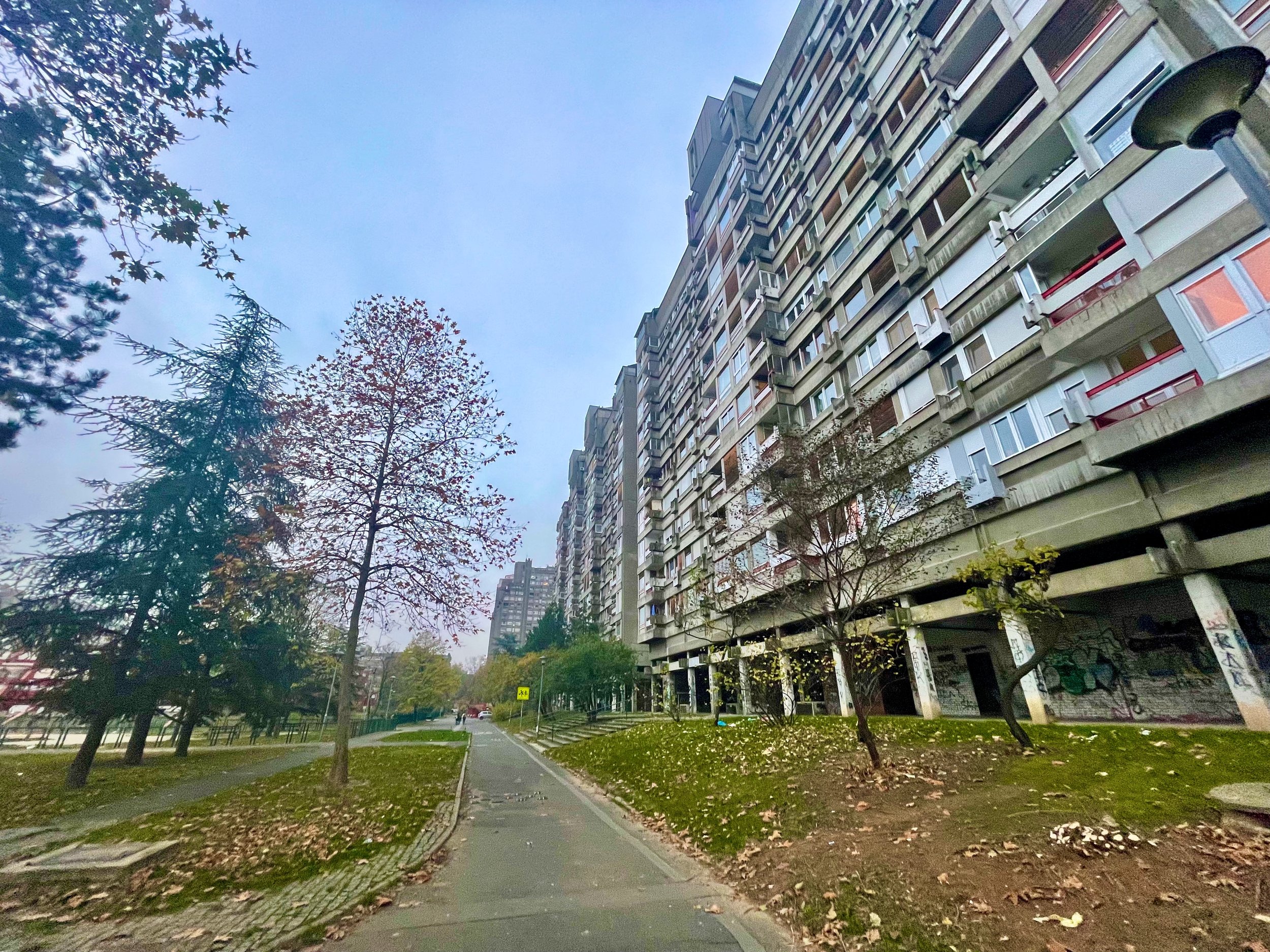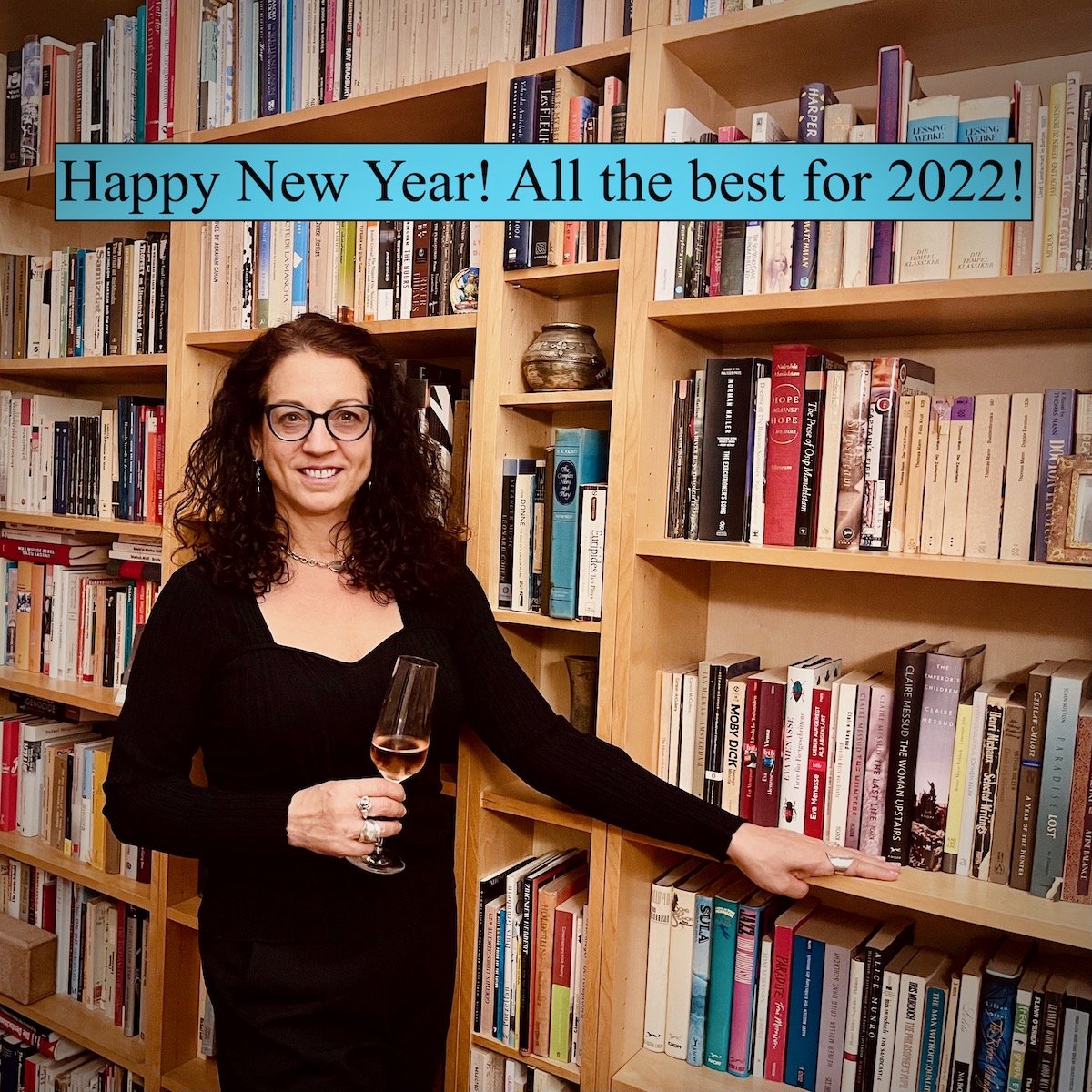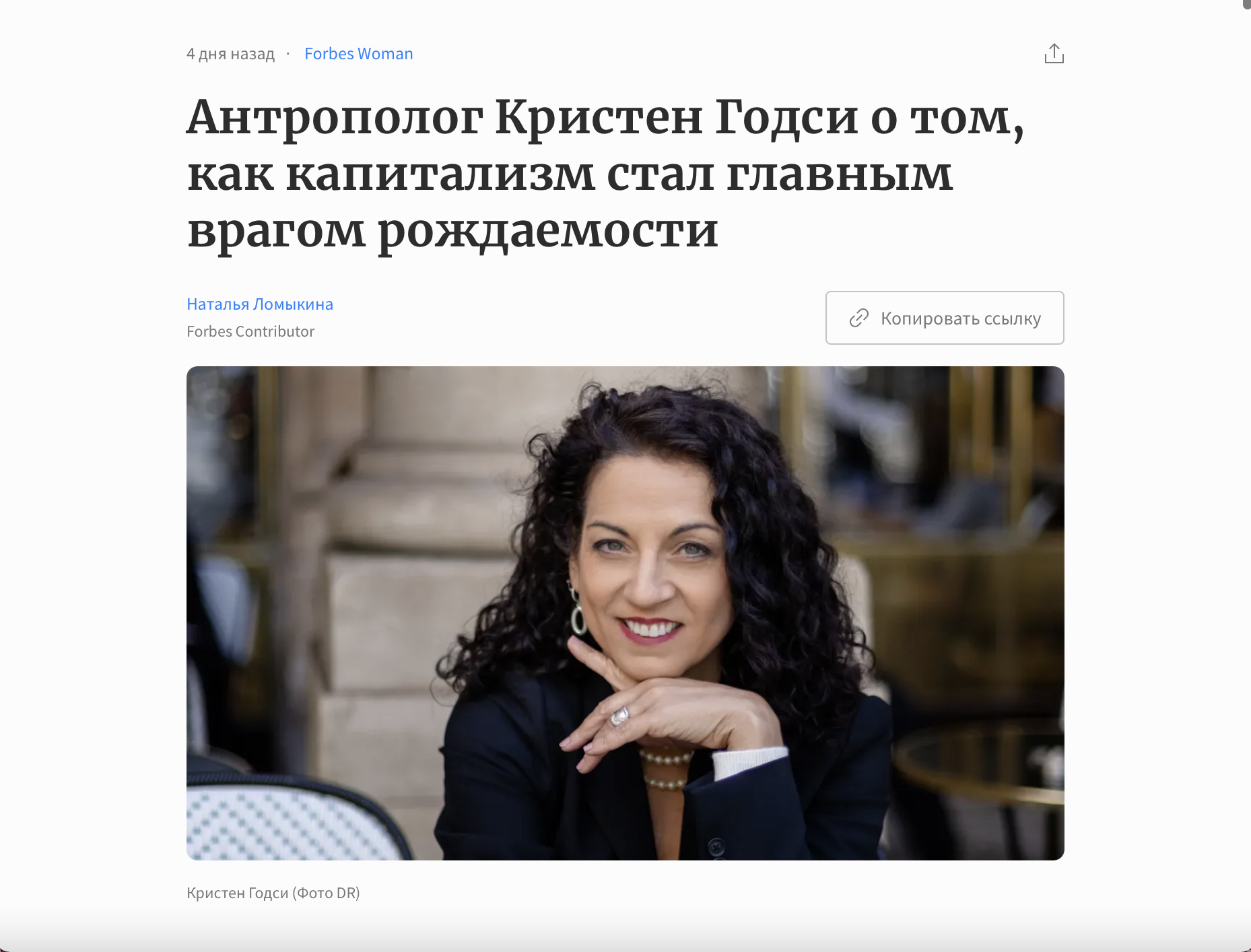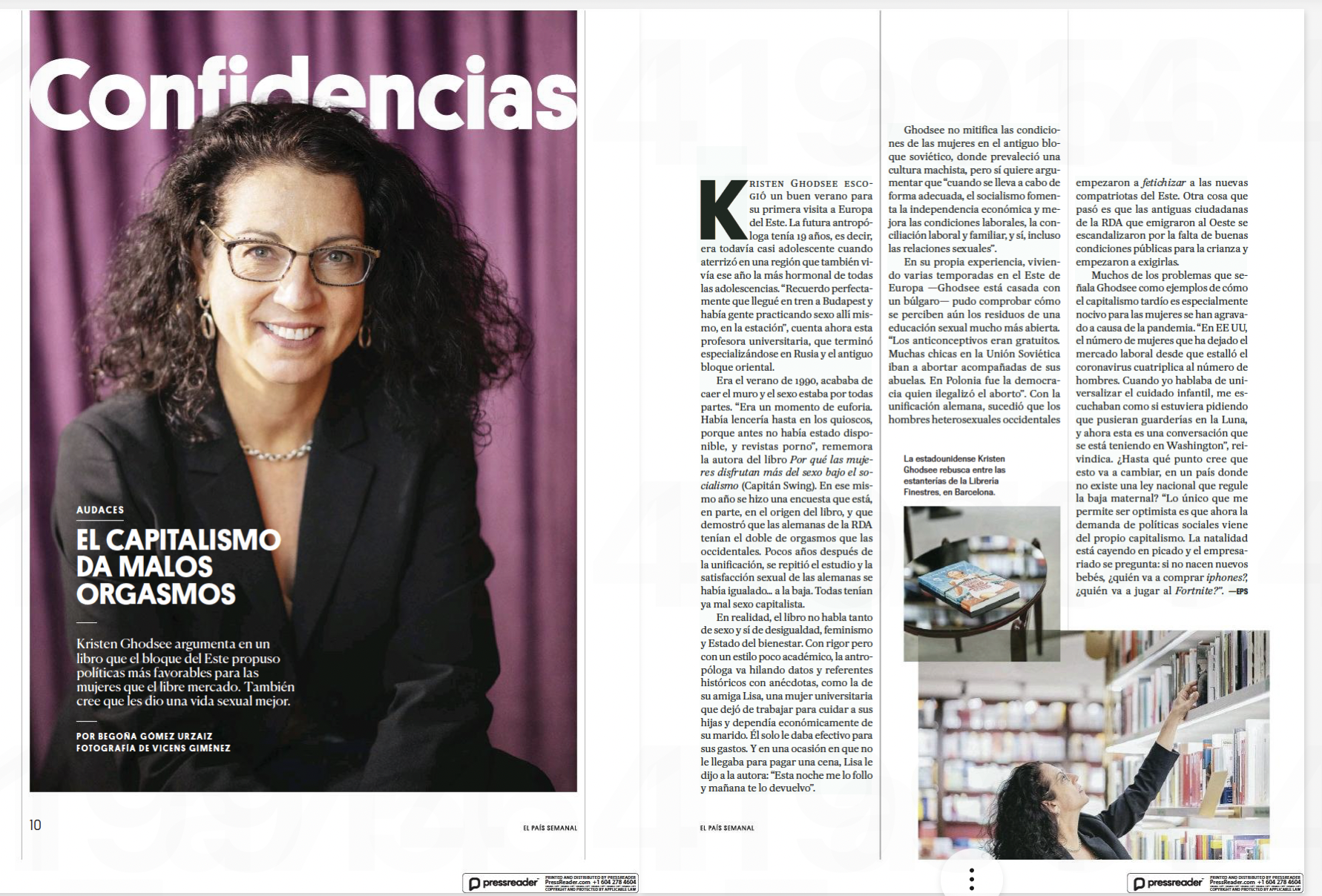Two videos from recent events
Here are two videos from a talk I gave with Mitchell Orenstein for the Universität zu Köln back in December and last week’s bookstore event with Lea Ypi.
New review of Taking Stock of Shock in Czech →
This Sunday at 15:00 EST - Lea Ypi
P&P Live! Lea Ypi — Free: A Child and a Country at the End of History - in conversation with Kristen Ghodsee
Upcoming Event - Sunday, January 23, 2022 - 3:00pm
CLICK HERE to register for this Virtual event!
A reflection on "freedom" in a dramatic, beautifully written memoir of the end of Communism in the Balkans.
Lea Ypi is professor of political theory at London School of Economics, and adjunct associate professor of philosophy at the Australian National University, with expertise in Marxism and critical theory. She lives and works in London.
Ypi will be joined in conversation with Kristen R. Ghodsee, an award-winning author and professor of Russian and East European Studies at the University of Pennsylvania. She is the author of Why Women Have Better Sex Under Socialism and the host of A.K. 47, an episodic podcast on the life and works of the Russian revolutionary Alexandra Kollontai.
Happy New Year!
Here’s to hoping that 2022 will be a better one.
Winter Reading: The Plague by Albert Camus
Last week, I found myself overwhelmed by the possibility that we could be looking at another year or two of pestilence. To ward off the despondence (because misery does love company) I hunkered down with a blanket and a copy of Albert Camus’s 1947 novel, The Plague. I devoured it cover-to-cover for the first time in over thirty years. I previously read it back in 1986 when fears of a world-ending nuclear war between the United States and the USSR far outweighed any considerations of a rampaging virus.
Back in March and April 2020, when the first pandemic reading lists appeared online, I resisted the bandwagoning trend to read [or reread] books like The Decameron or the The Plague. It seemed hysterical and a bit premature and so hard to imagine that we could still be living this exasperating reality almost two years later. But Camus’s novel exudes true brilliance, and even those who consumed it back in early 2020 will find it all the more poignant now. One of my favorite quotes:
In this respect [the citizens of Oran] had adapted themselves to the very condition of the plague, all the more potent for its mediocrity. None of us was capable any longer of an exalted emotion; all had trite, monotonous feelings. “It’s high time it stopped,” people would say, because in times of calamity the obvious thing is to desire its end, and in fact they wanted it to end. But when making such remarks, we felt none of the passionate yearning or fierce resentment of the early phase; we merely voiced one of the few clear ideas that lingered in the twilight of our minds. The furious revolt of the first weeks had given place to a vast despondency, not to be taken for resignation, though it was nonetheless a sort of passive and provisional acquiescence.
Our fellow citizens had fallen into line, had adapted themselves, as people say, to the situation, because there was no way of doing otherwise. Naturally they retained the attitudes of sadness and suffering, but they had ceased to feel their sting. Indeed, to some, Dr. Rieux among them, this precisely was the most disheartening thing: that the habit of despair is worse than despair itself (page 180-181).
Winter reading: Cloud Cuckoo Land by Anthony Doerr
Cloud Cuckoo Land is a beautiful book about a book and the power of words spanning generations. It’s about all of the stories that link us together and the beauty of writing. It’s a 600-page novel with three different sets of protagonists in different time frames whose stories all somehow converge at the end. The first 150-pages of exposition can be a little confusing and hard to follow, but it is definitely worth it. One of the best novels I have read in a very long time, and I just re-read The Plague by Camus.
One of my favorite quotes: “That’s what the gods do, they spin threads of ruin through the fabric of our lives, all to make a song for generations to come.” page 439
How Strange It Feels to Watch Your Country Die, by Alina Yakubova →
So thrilled to see this piece in Jacobin to mark the 30th anniversary of the collapse of the USSR by the departmental coordinator of Penn’s Russian and East European Studies, our very own Alina Yakubova.
Thanks to Gábor Scheiring at Review of Democracy
Happy Winter Solstice!
In this bleak atmosphere of Omicron and new closures, I am grateful that at least the days will start to get longer from here on out. It is the small comforts that will get us through this.
New interview in Forbes Woman [in Russian] →
A screenshot of the print edition of El País Semanal
So this was a really big deal in Spain, since El País Semanal is a little bit like the New York Times Magazine, and it has generate a lot of renewed attention to the book in Spain and in Brazil where it finally appeared in Portuguese this last summer. Unfortunately, I don’t have an actual copy of the issue or even a pdf of the feature, so I had to take a screenshot using Penn’s subscription on Pressreader.
New interview in French and new review in Spanish
Profile in El País Semanal in Spanish and Portuguese
Daisy
We acquired this runty little thief in 2011 as a rescue dog with no papers. At the time, the vet thought she might be 3-years-old, but we never knew for sure. Yesterday afternoon, after 10 years (including 2 pandemic years), my little Basset Hound took her last breaths. And I wasn’t there.
There are no words.
Chillin' in Athens so I can get to Italy
Since I have a lecture at the European University Institute on December 8th, I needed to first come to Greece because the Italians won’t let me in from Serbia. So I am taking in some sights outside and trying to avoid the crowds. Thankfully, late November is the low season in Athens, and most of the famous sites are relatively empty. And the weather is glorious.
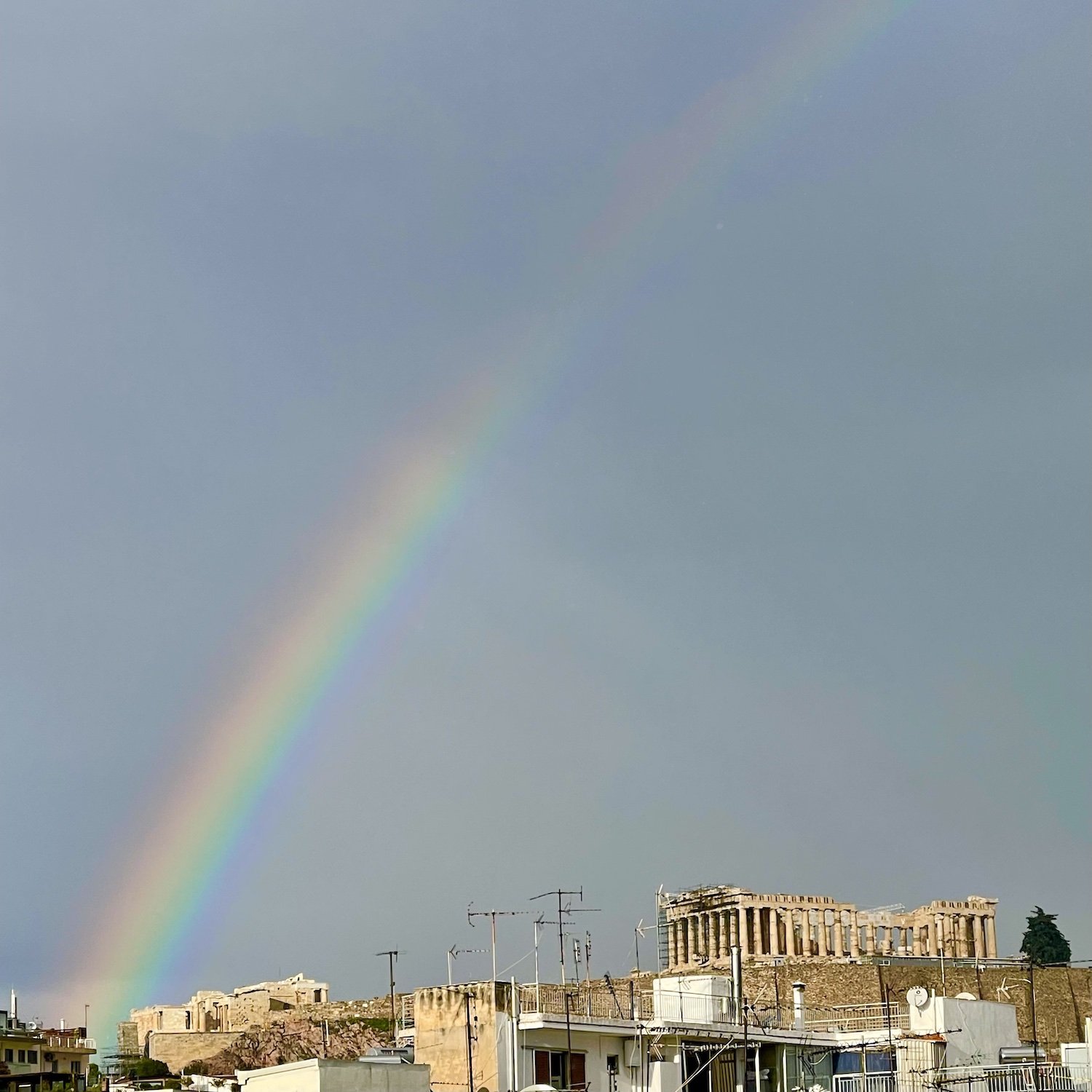
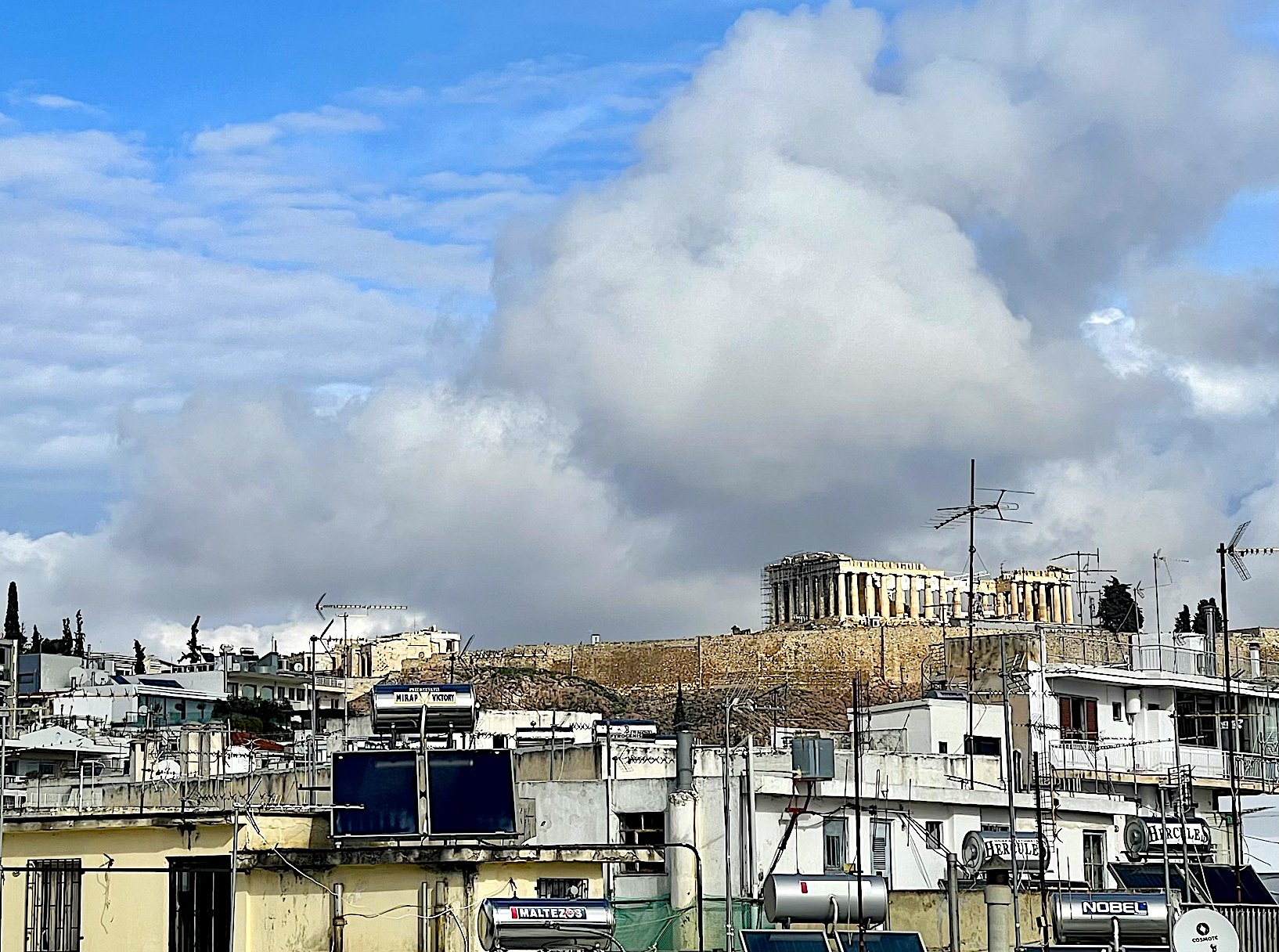
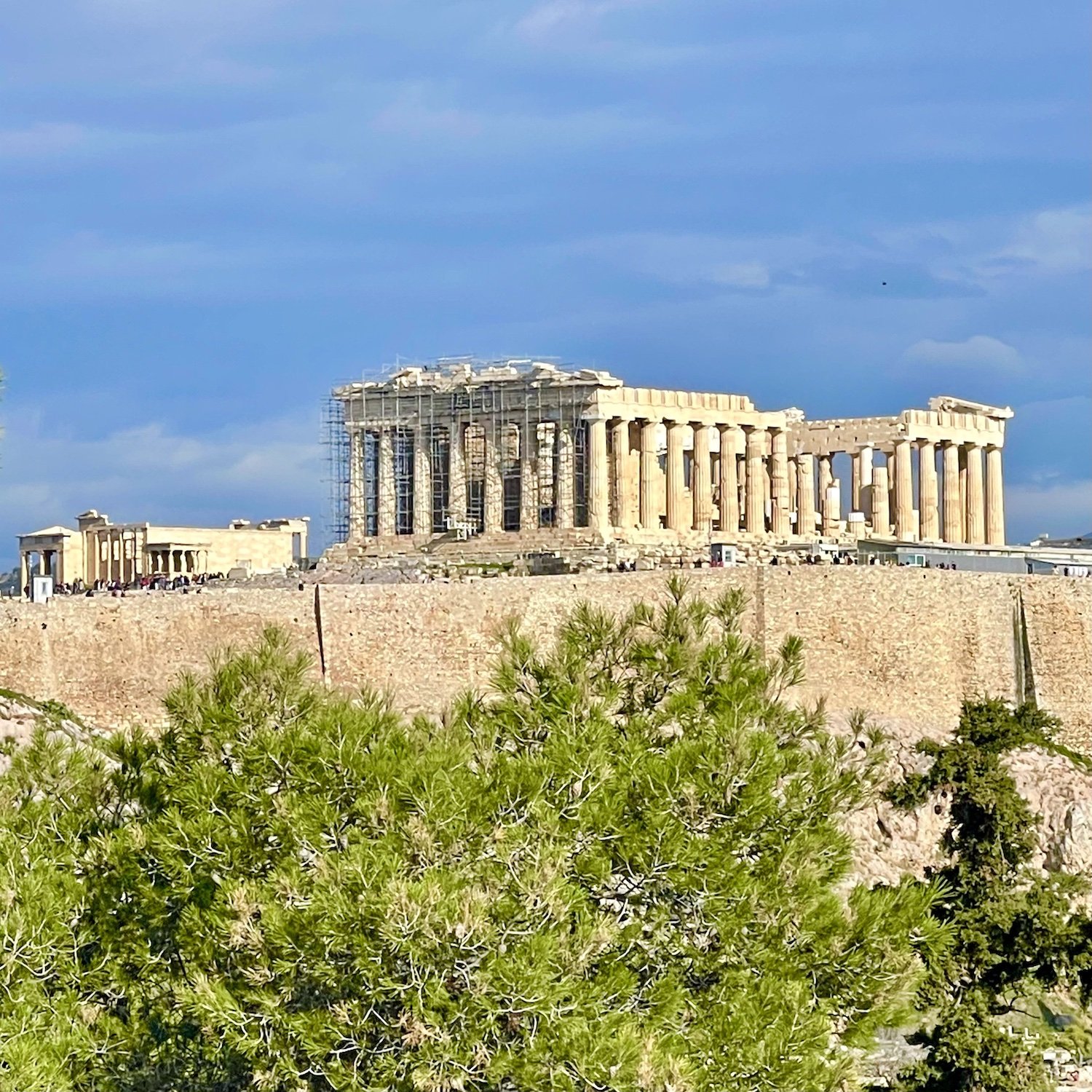
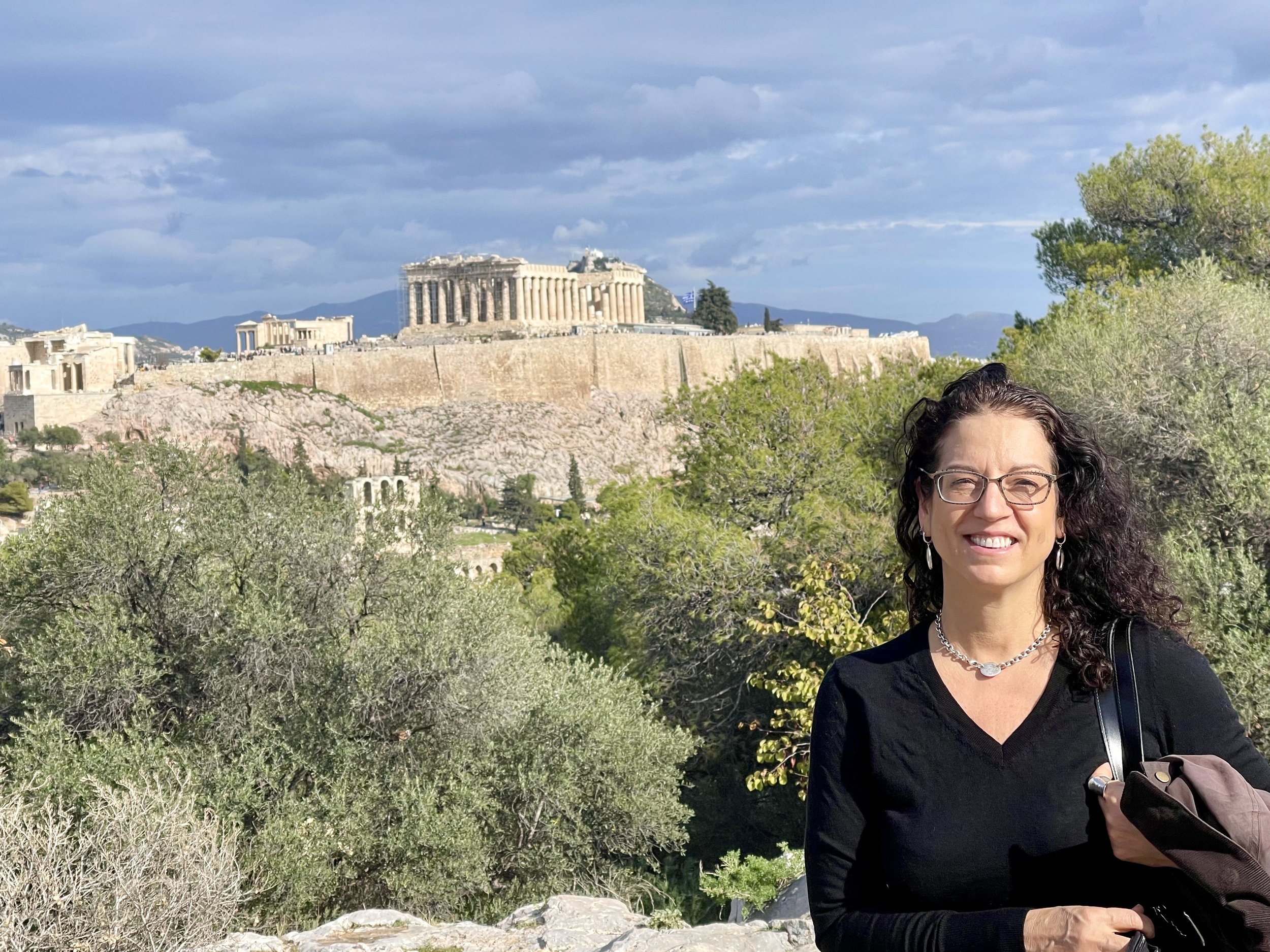
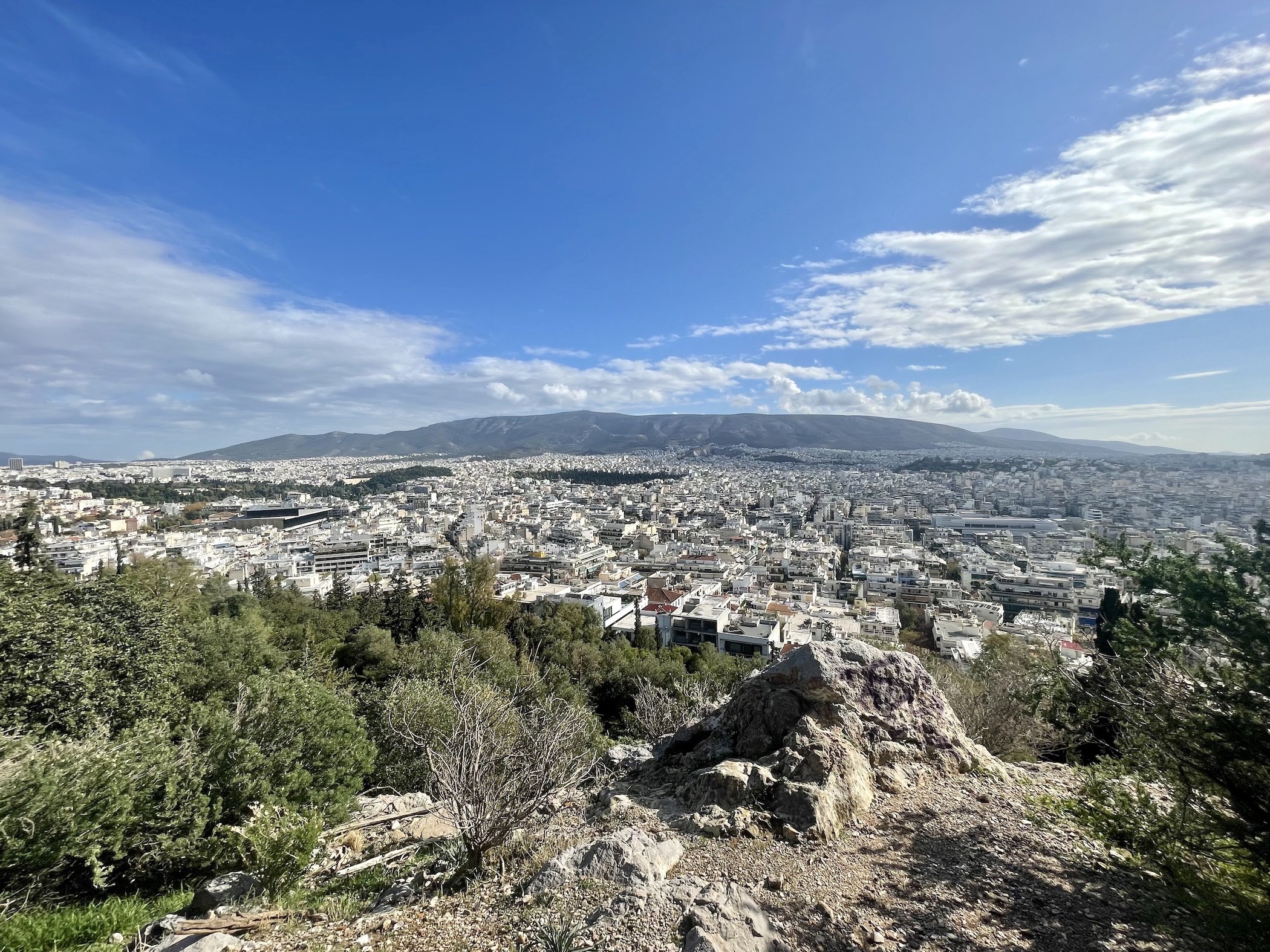
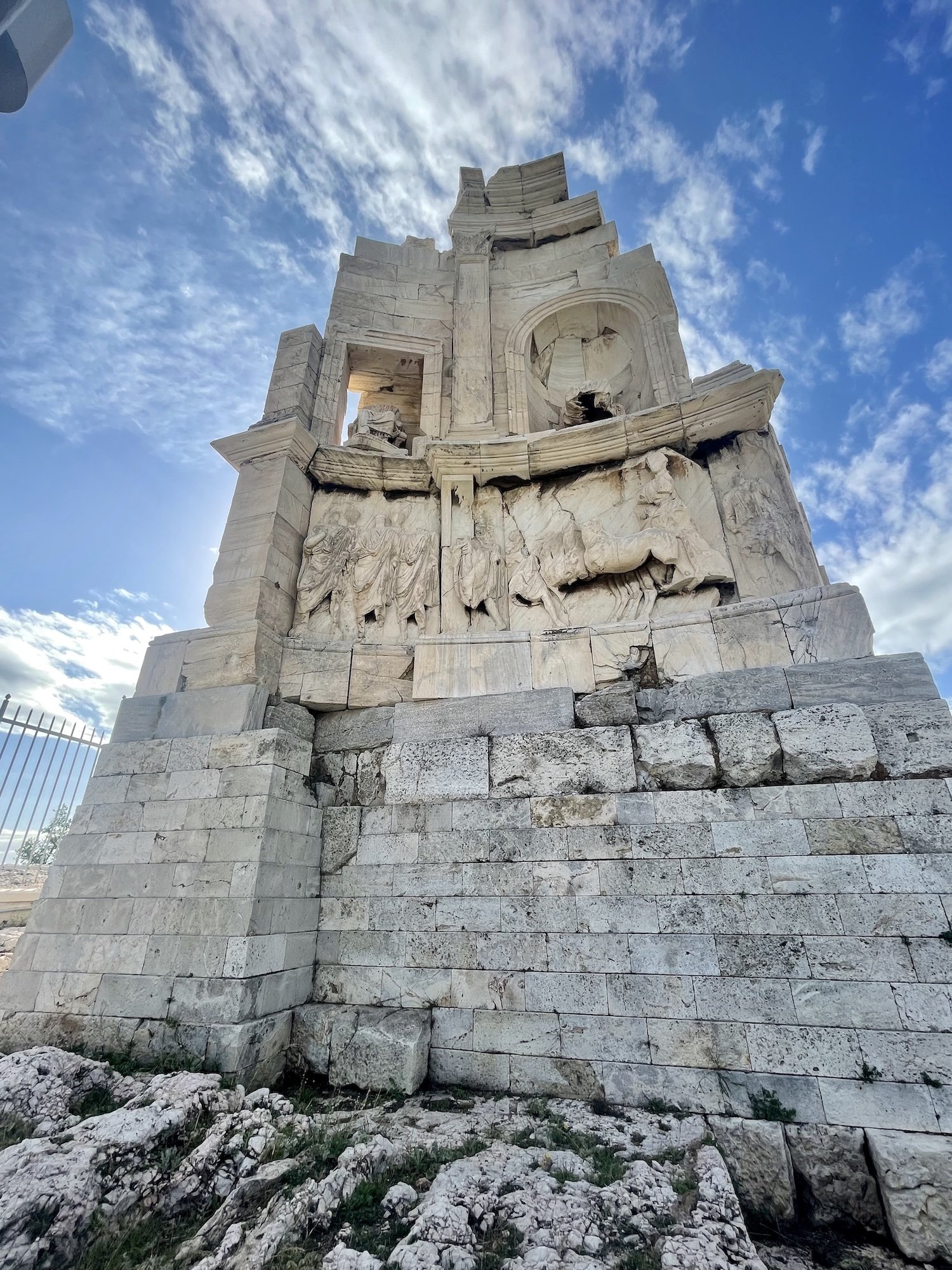
A Basset in Belgrade!
Oh, how I miss my hound doggie! Look at this beautiful girl.
My visit to the Belgrade book museum →
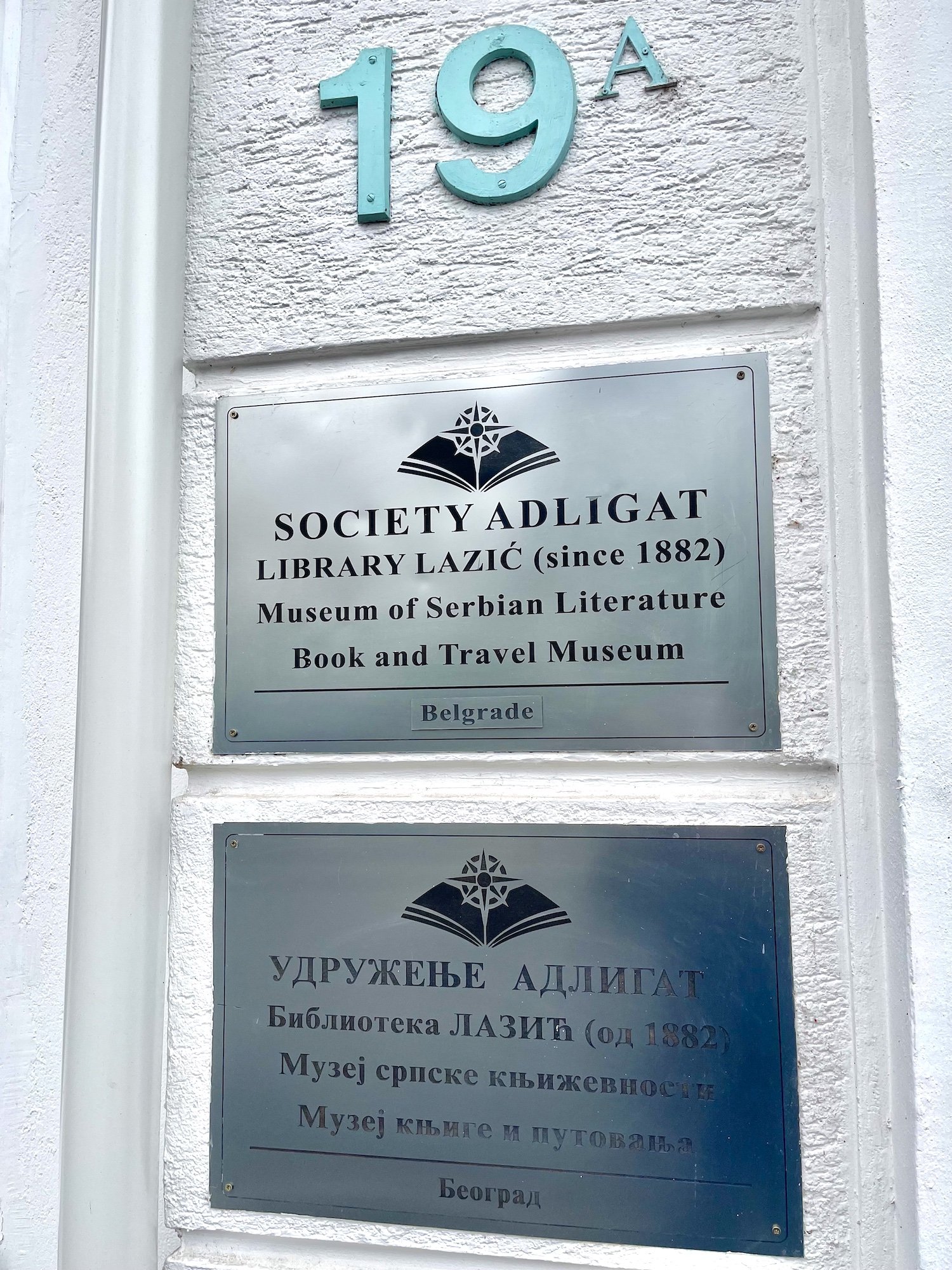

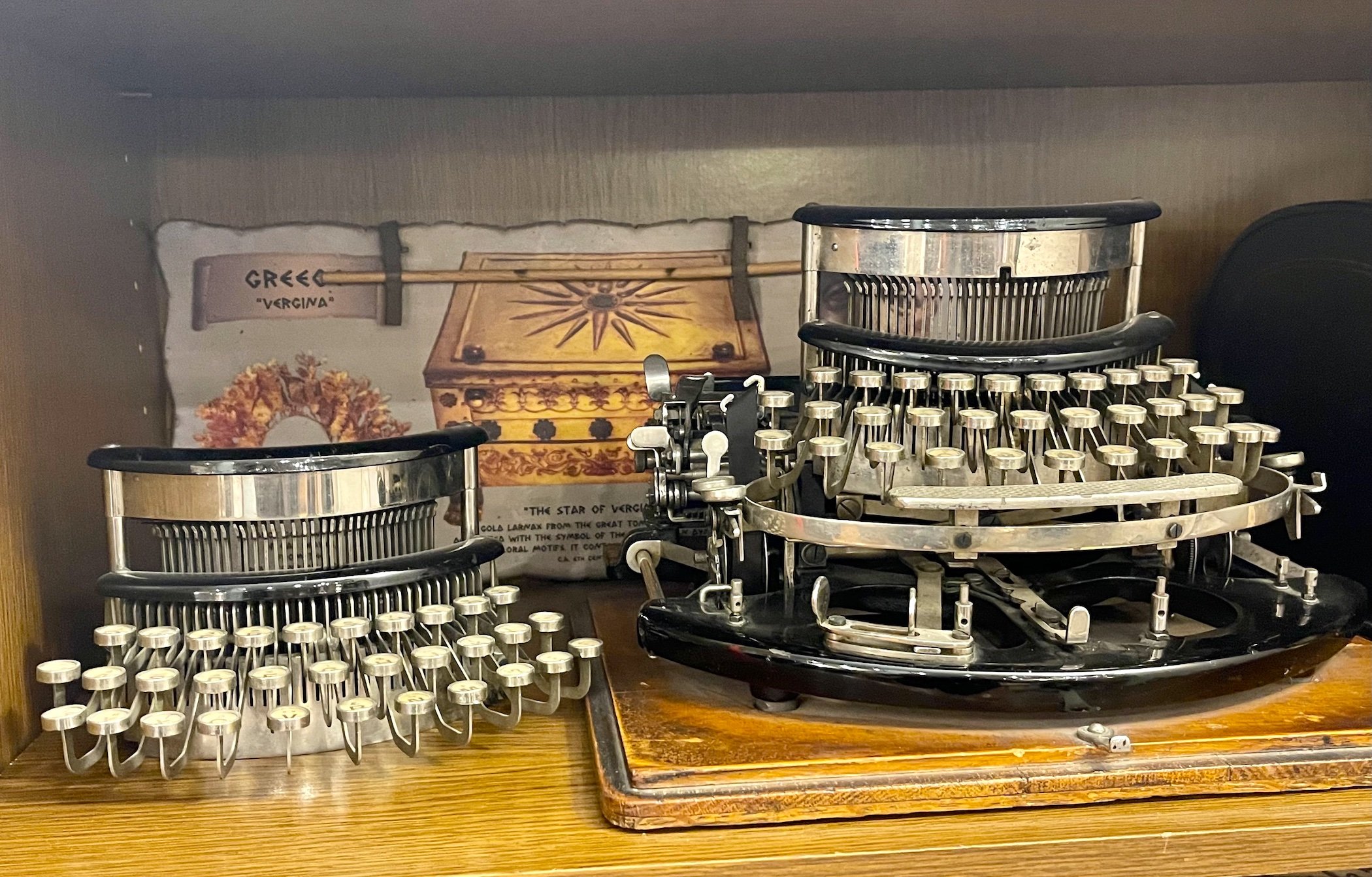
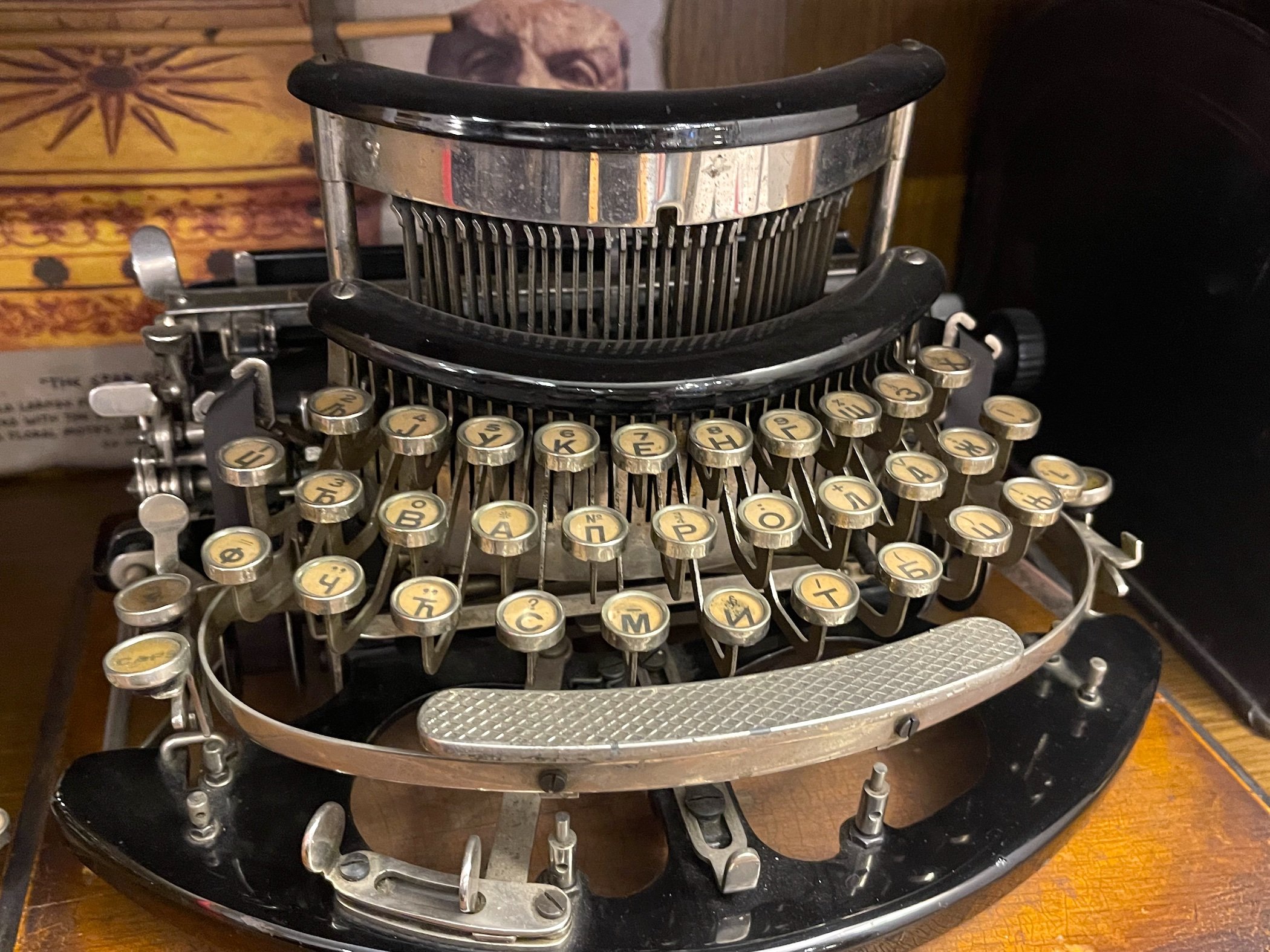
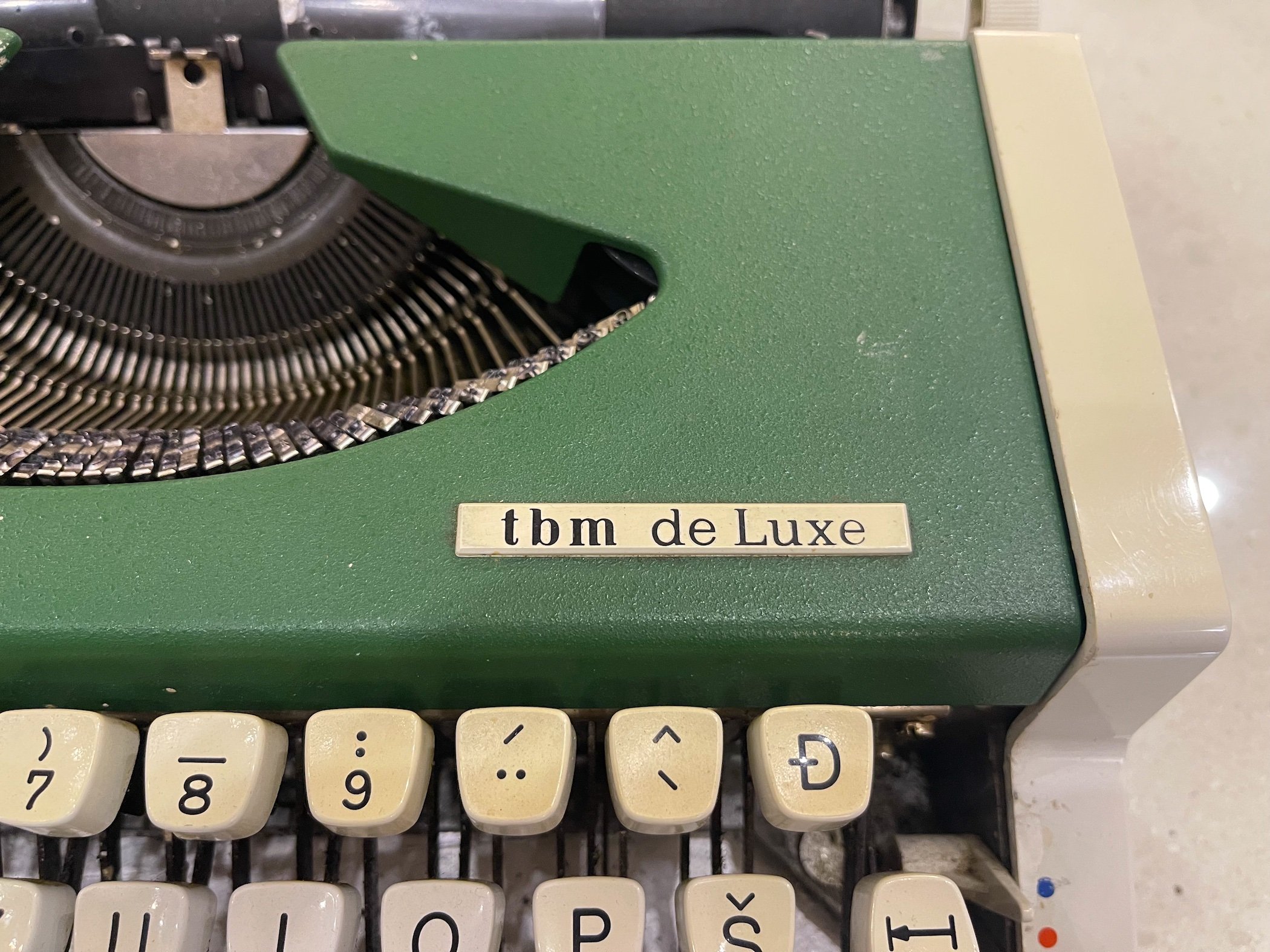
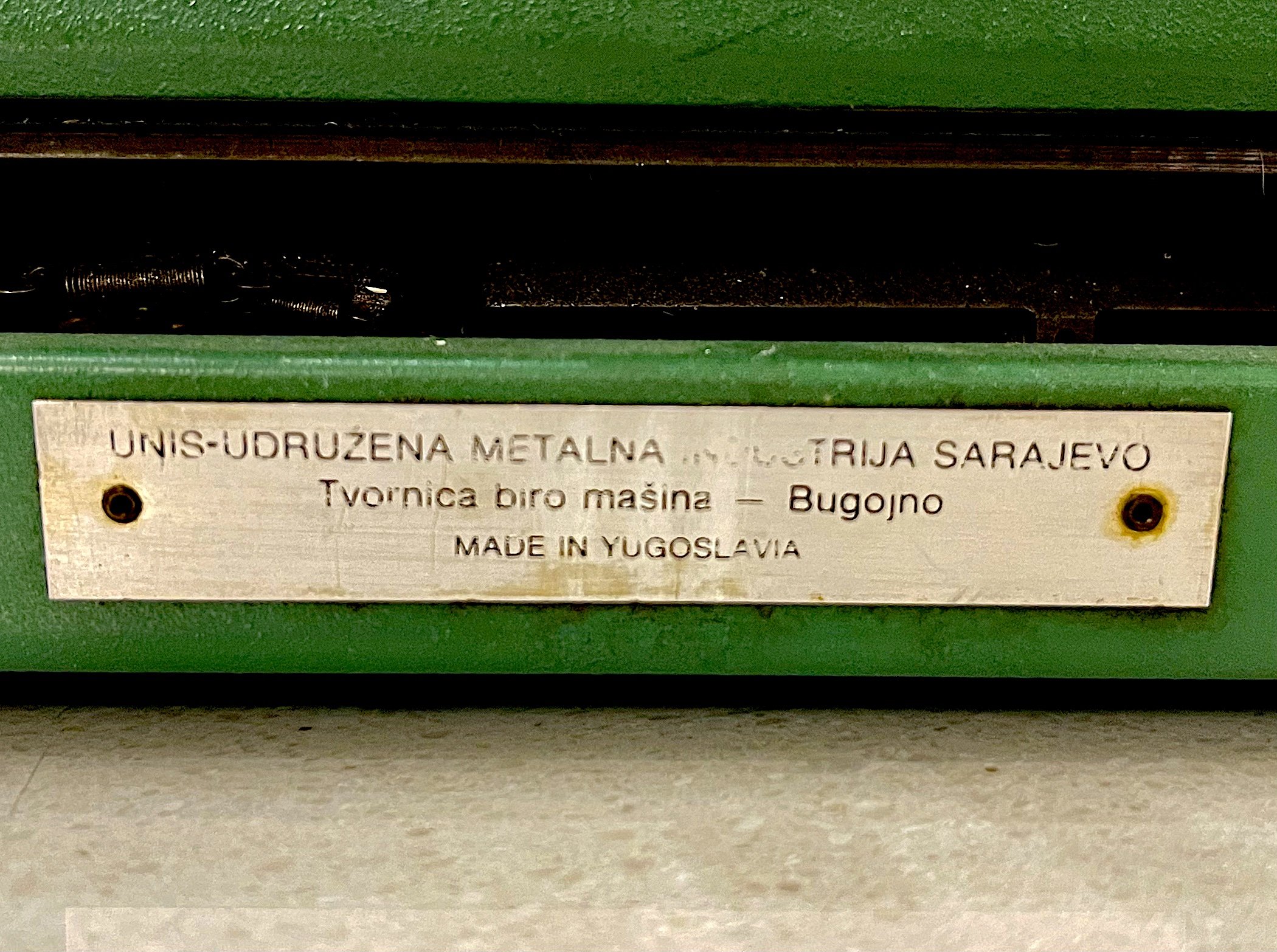

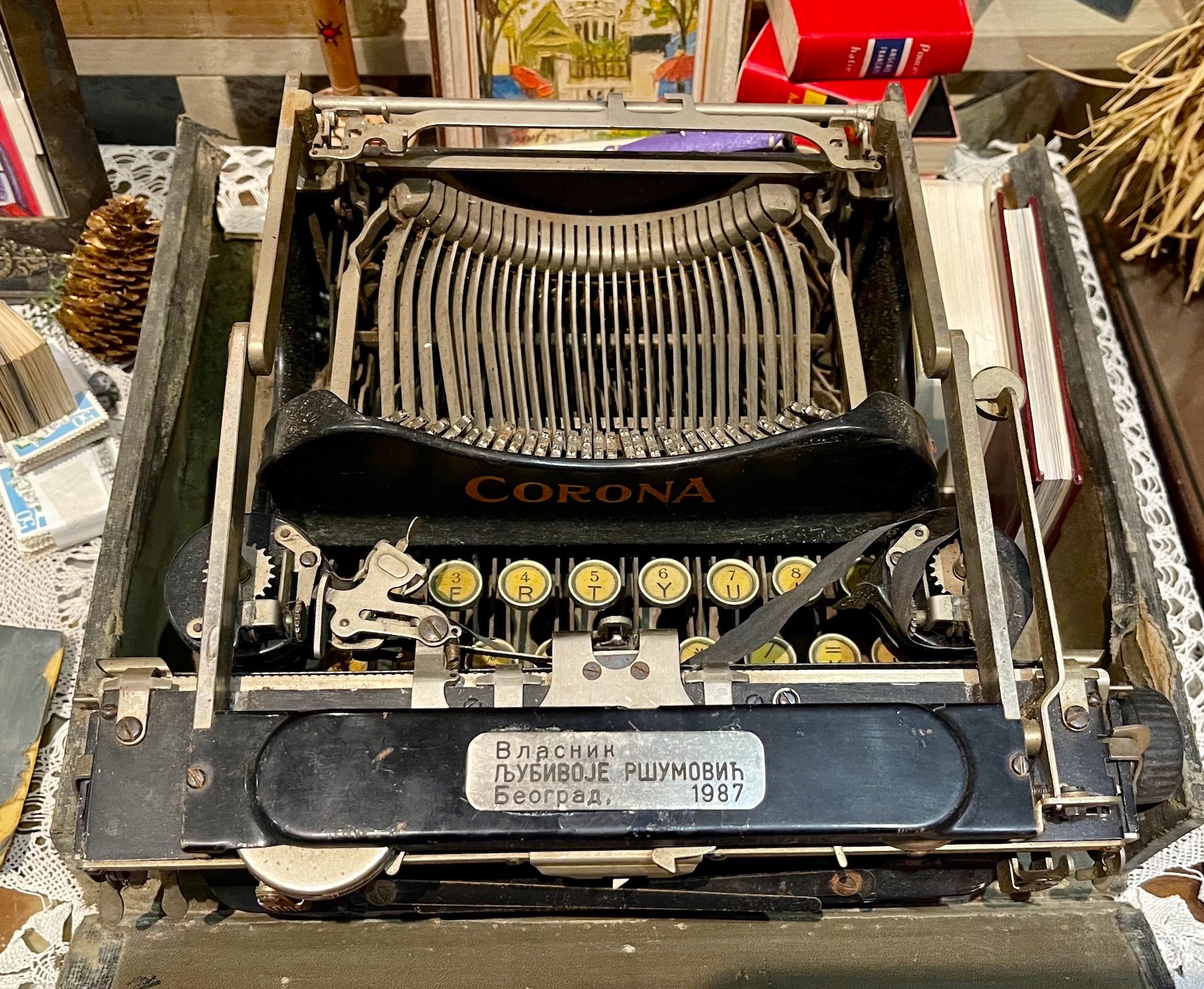
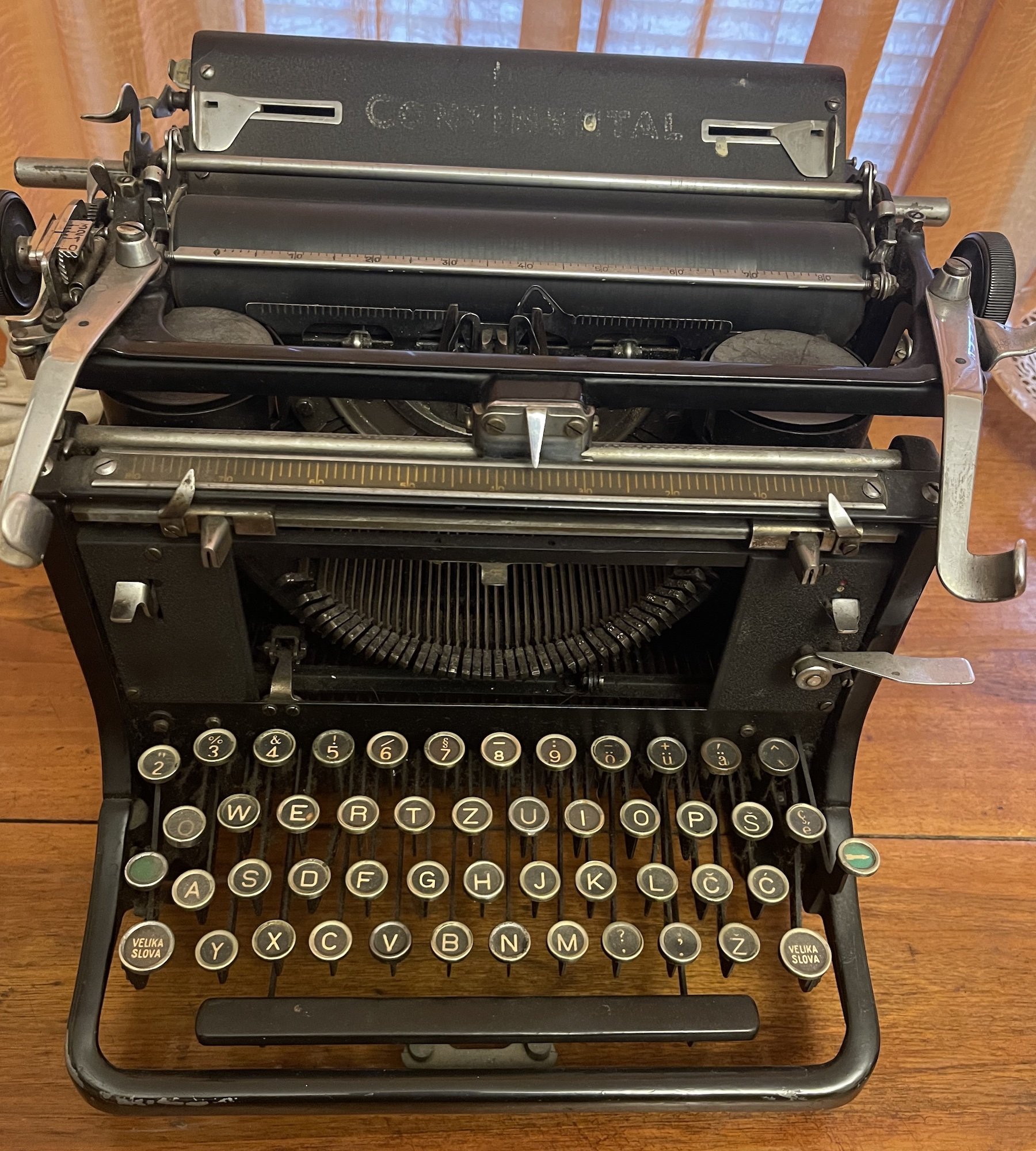
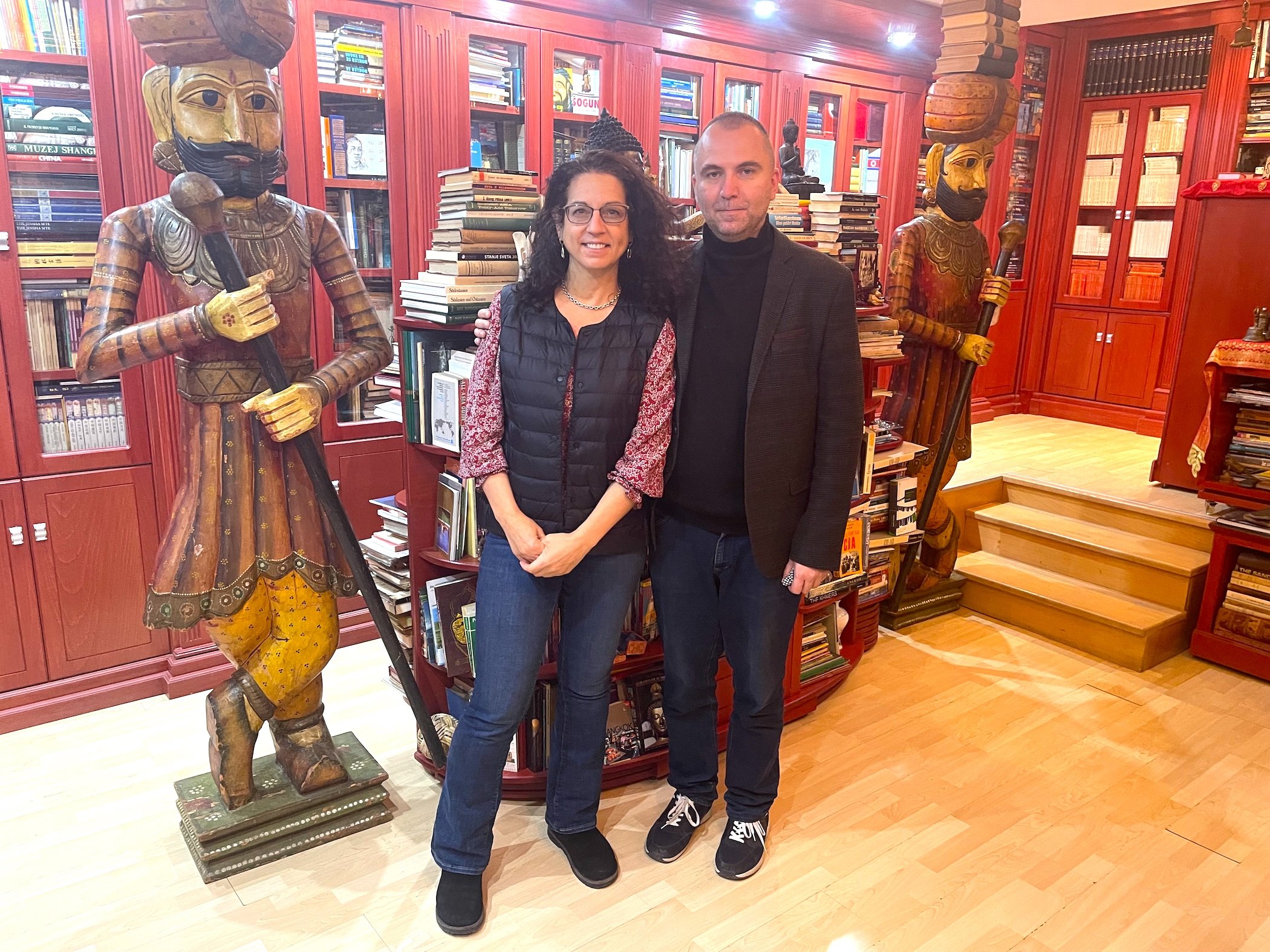
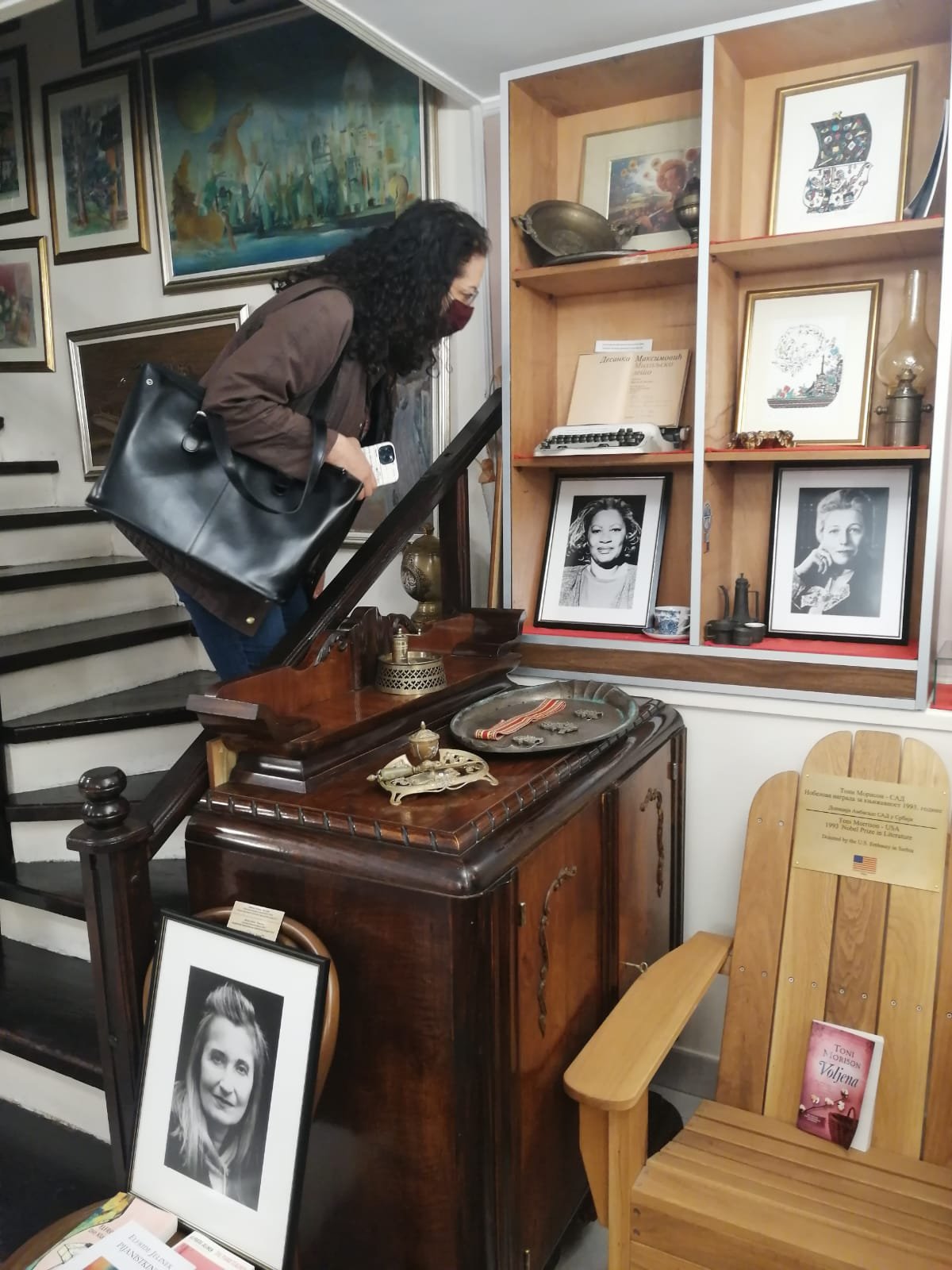
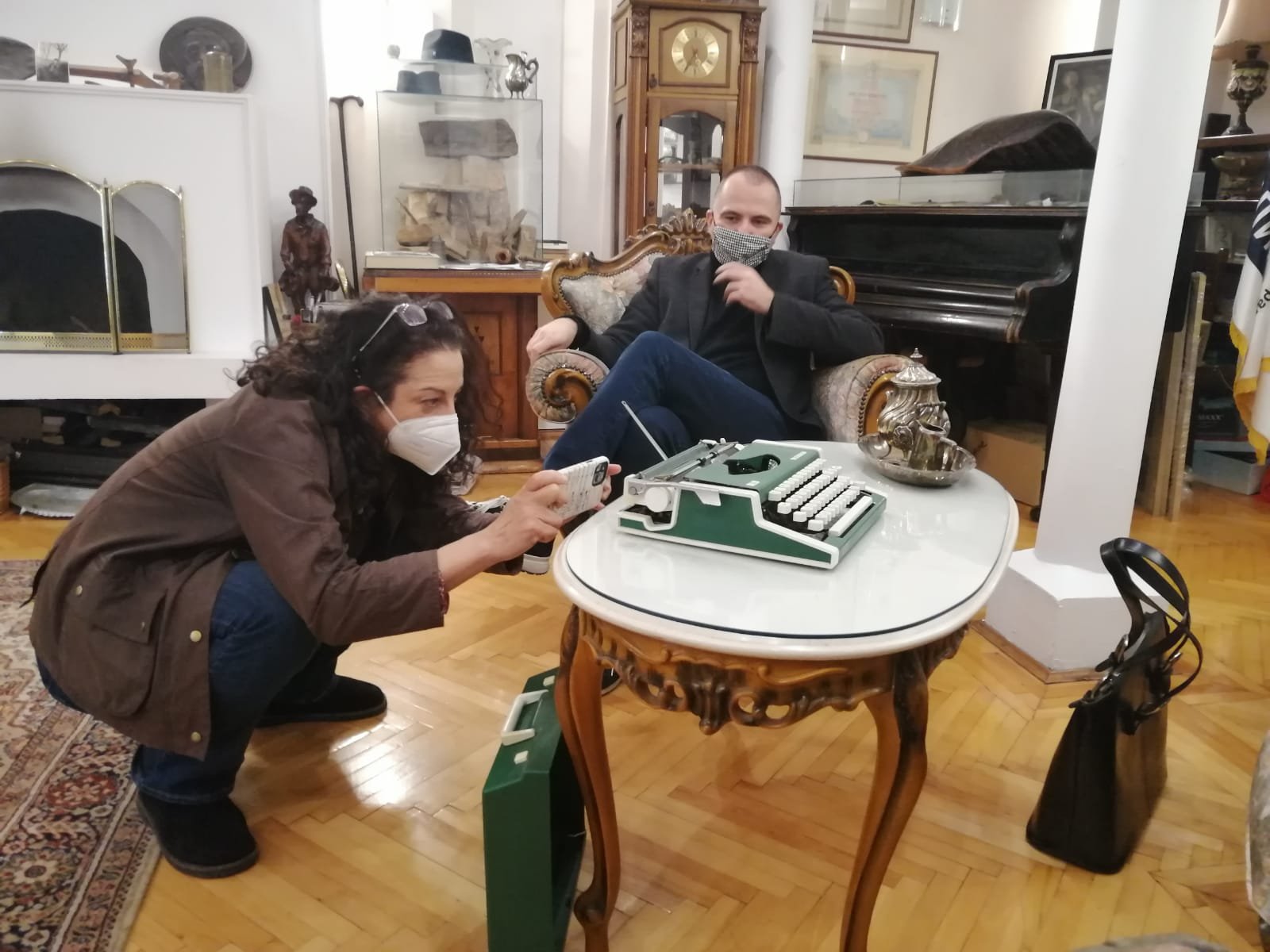
Yesterday, on my hunt for information about Yugoslav typewriters, I found myself at ADLIGAT, the Society for Culture, Art and International Cooperation in Belgrade. This place is a bibliophile’s dreamland; they have over one million books and various exhibits and displays about book cultures from around the globe. They also have an impressive number of typewriters on display, many which belonged to famous writers, including the wonderful UNIS tbm de Luxe, which was manufactured in Bugojno from 1971 to 1991 under a German license and was exported with 92 different keyboards to nations in Africa, Asia, and Latin America. I’m told they have more than 100 machines in storage, and I am lobbying for a special typewriter room! Below are some photos from my visit, but they simply cannot do justice to the magical nature of the place. Visit if you can!
Life in Socialism book
I picked up this little book for children at the Museum of Yugoslavia. Here are the pages about women’s rights.
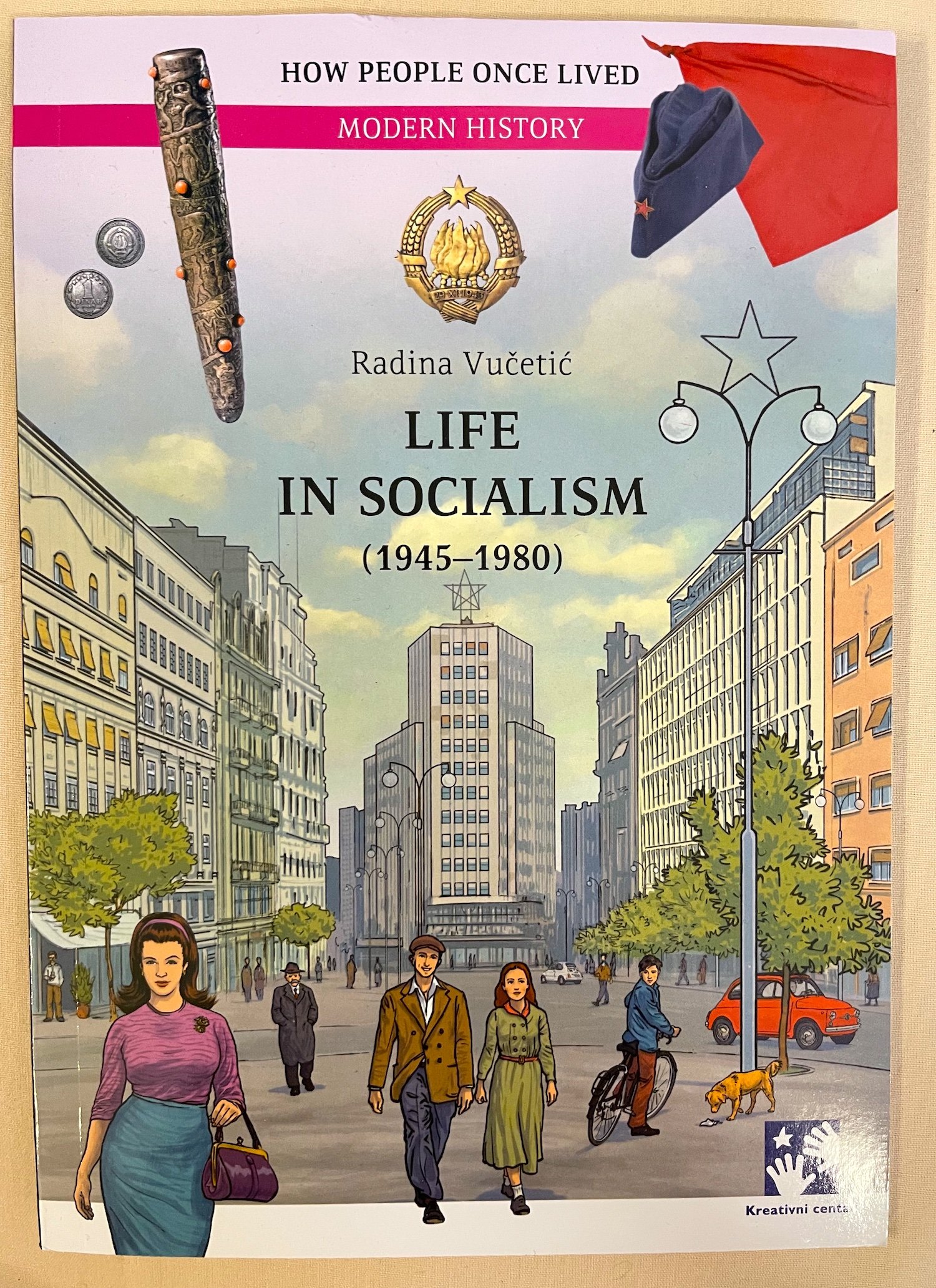
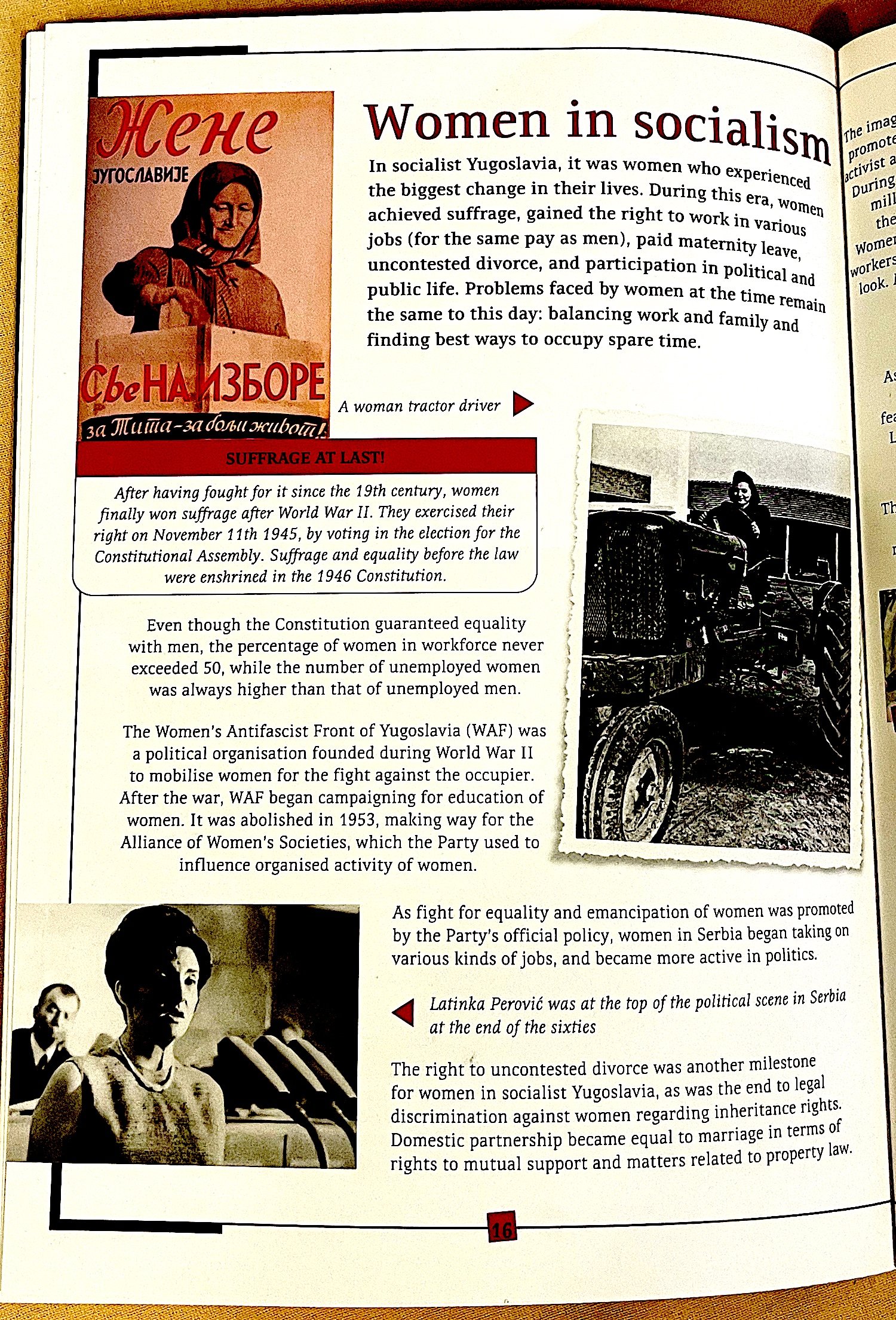
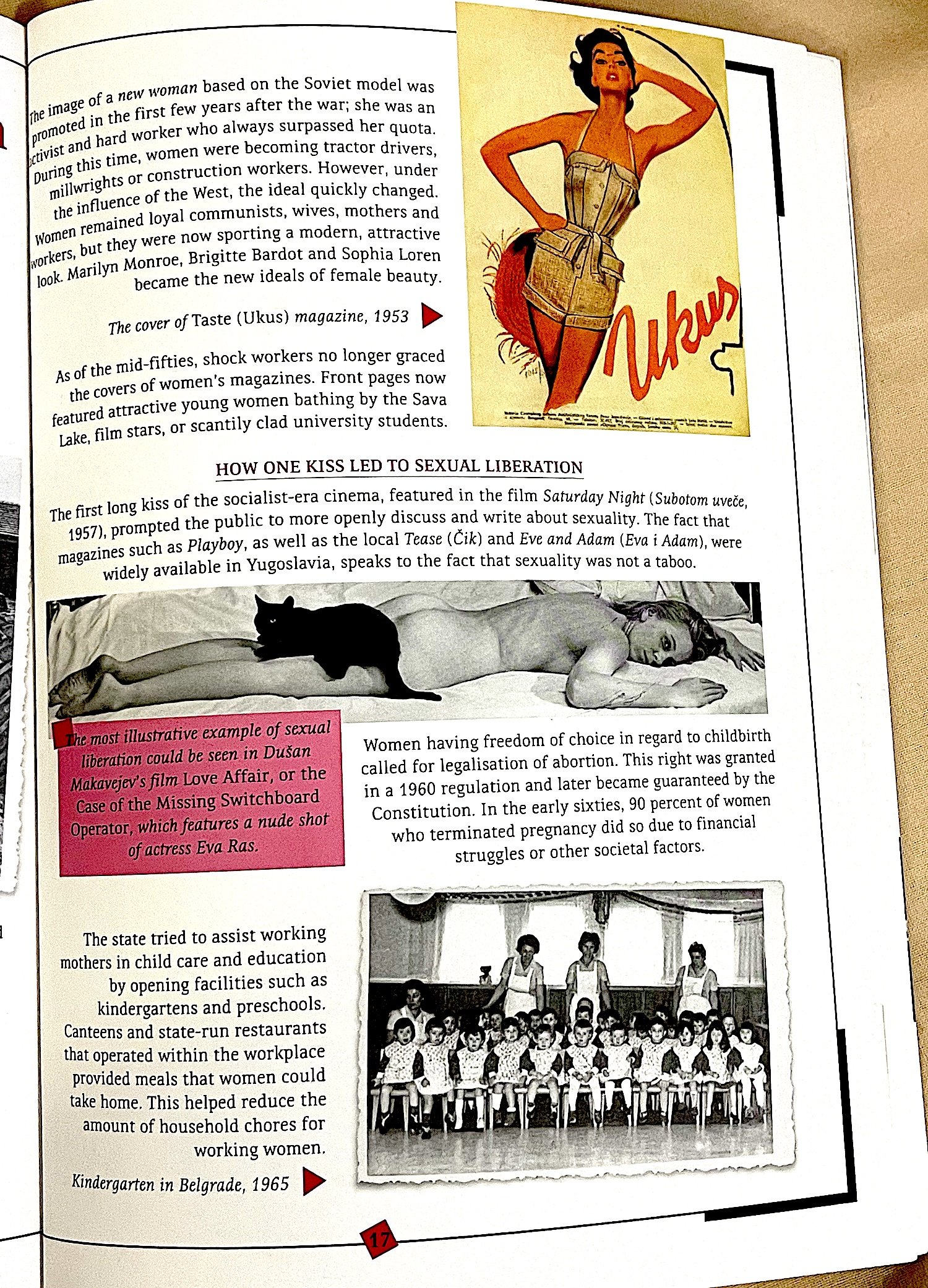
Concrete and Steel Dreams in New Belgrade
